2016 Awardees
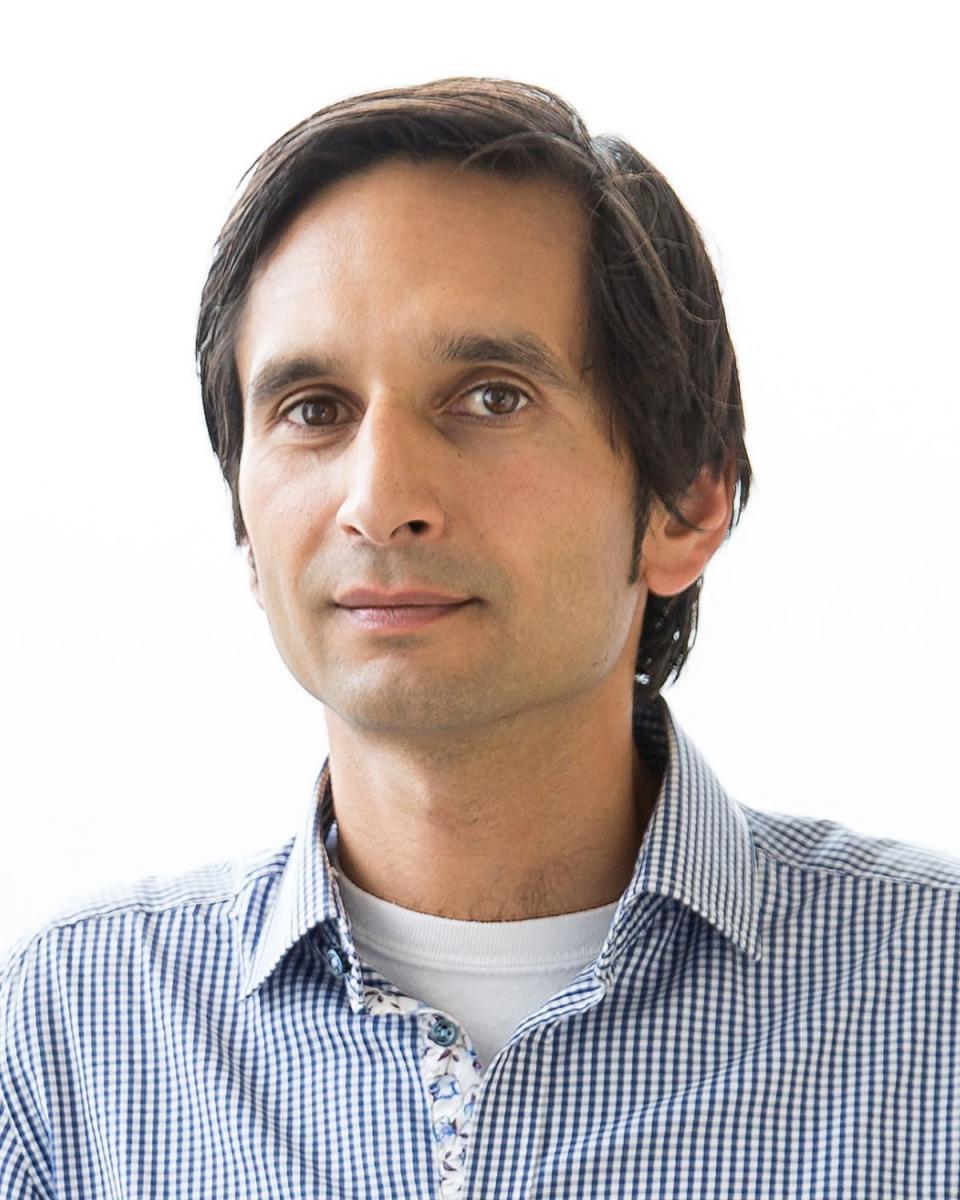
Bassem Al-Sady, Ph.D.
University of California at San Francisco
Project Title: Reconstructing Dynamic Epigenetic Genome Partitioning in Single Stem Cells
Grant ID: DP2-GM-123484
Bassem Al-Sady is from Nuernberg, Germany and received his Masters’ in Biochemistry from the University of Oxford in the United Kingdom. Bassem earned his Ph.D. in Plant Biology from the University of California at Berkeley where he worked with Dr. Peter Quail on the primary mechanism by which the plant photoreceptor phytochrome rapidly transmits light signals to the cell nucleus. Following completion of his Ph.D., he received his postdoctoral training with Drs. Geeta Narlikar and Hiten Madhani in the Department of Biochemistry and Biophysics at the University of California, San Francisco (UCSF). In his postdoctoral work, Bassem focused on unraveling biochemical principles of heterochromatin assembly, as well as the mechanisms of propagation of heterochromatin information along the chromosome using the fission yeast model. In 2013, he joined the faculty in the Department of Microbiology and Immunology at UCSF as Assistant Professor in Residence, where his group builds biochemical and single cell genetic tools to dissect mechanisms of the heterochromatin spreading reaction in genome partitioning and directing differentiation.
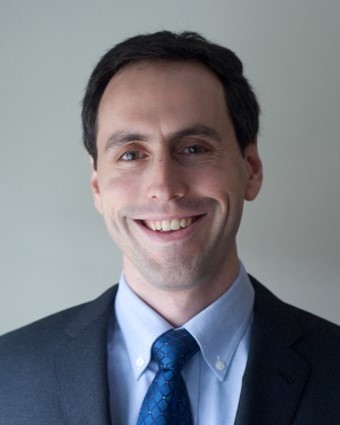
Jason R. Andrews, M.D., S.M.
Stanford University
Project Title: Congregate Air Sampling for Population-Based Detection of Tuberculosis
Grant ID: DP2-AI-131082
Jason Andrews is an Assistant Professor of Medicine in the Division of Infectious Diseases and Geographic Medicine at Stanford University and a practicing infectious diseases physician. A graduate of Yale College, Yale School of Medicine and Harvard School of Public Health, his research focuses on developing and evaluating novel methods for diagnosis and understanding transmission dynamics of tuberculosis and tropical diseases. His work includes field sites in South Africa, Brazil and Nepal, and incorporates field and molecular epidemiology, microbiology, statistical inference, and mathematical modeling.
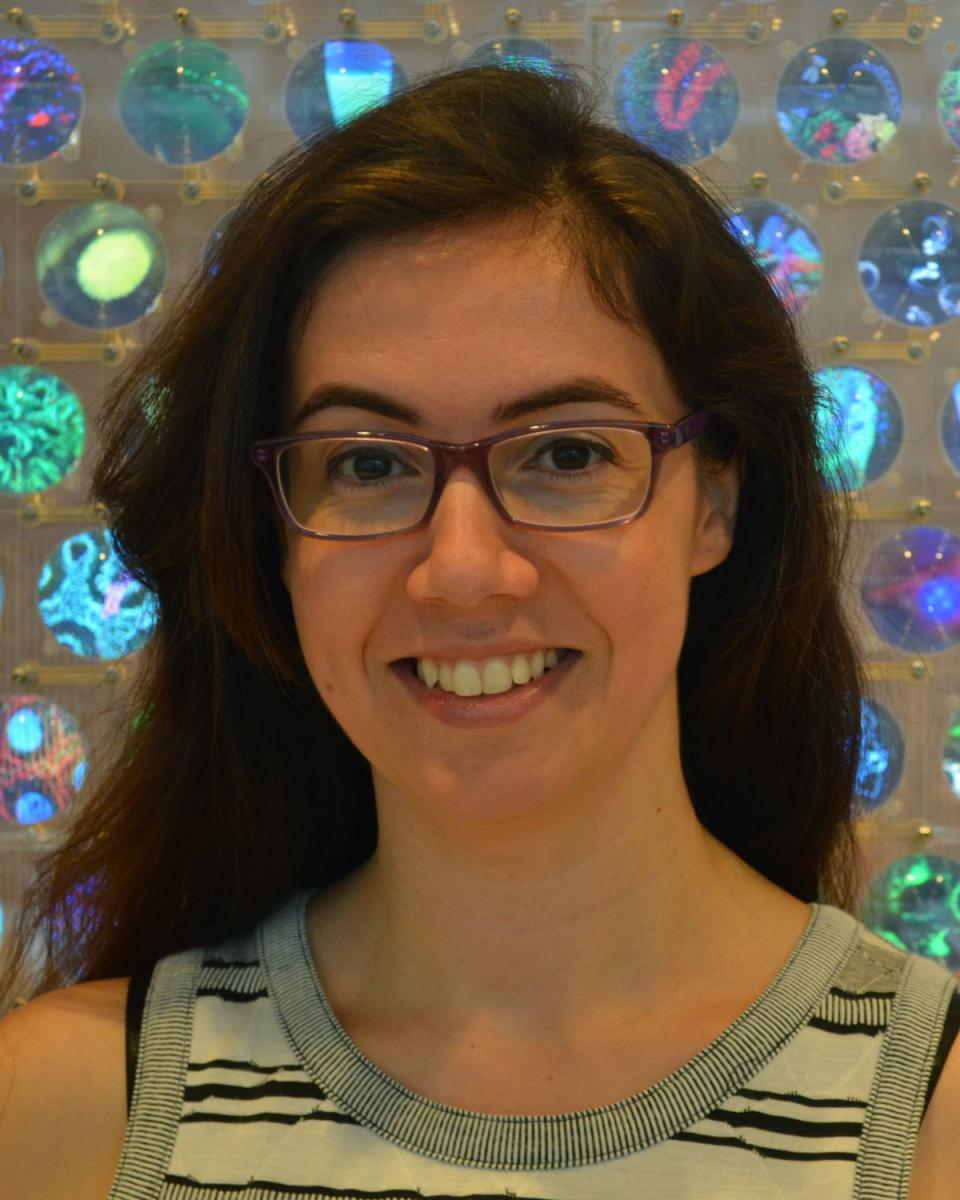
Effie Apostolou, Ph.D.
Weill Cornell Medicine
Project Title: Defining the Role of Chromatin Architecture in Cell Fate Inheritance
Grant ID: DP2-DA-043813
Effie Apostolou is an Assistant Professor of Molecular Biology in Medicine at the Department of Medicine and the Meyer Cancer Center at Weill Cornell Medicine in New York. Her research focus is to understand the interplay between transcription factors and higher-order chromatin organization in the regulation of gene expression and cell identity. She received her B.Sc. in Biology from the Aristotle University of Thessaloniki and her Ph.D in Molecular Biology from the National University of Athens in Greece. As a PhD student in Dimitris Thanos’ lab in Athens, Greece, she discovered novel molecular mechanisms that drive stochastic gene expression upon viral infection. For her postdoctoral studies, she joined Konrad Hochedlinger’s lab at the Massachussetts General Hospital and Harvard Stem Cell Institute, Boston, where she focused on dissecting epigenetic and chromatin organization changes during somatic cell reprogramming and their effect on pluripotency. Effie is also a recipient of an Edward Jr Mallinckrodt research grant and of two Tri-Institutional Stem cell Initiative Grants funded by the Starr Foundation.
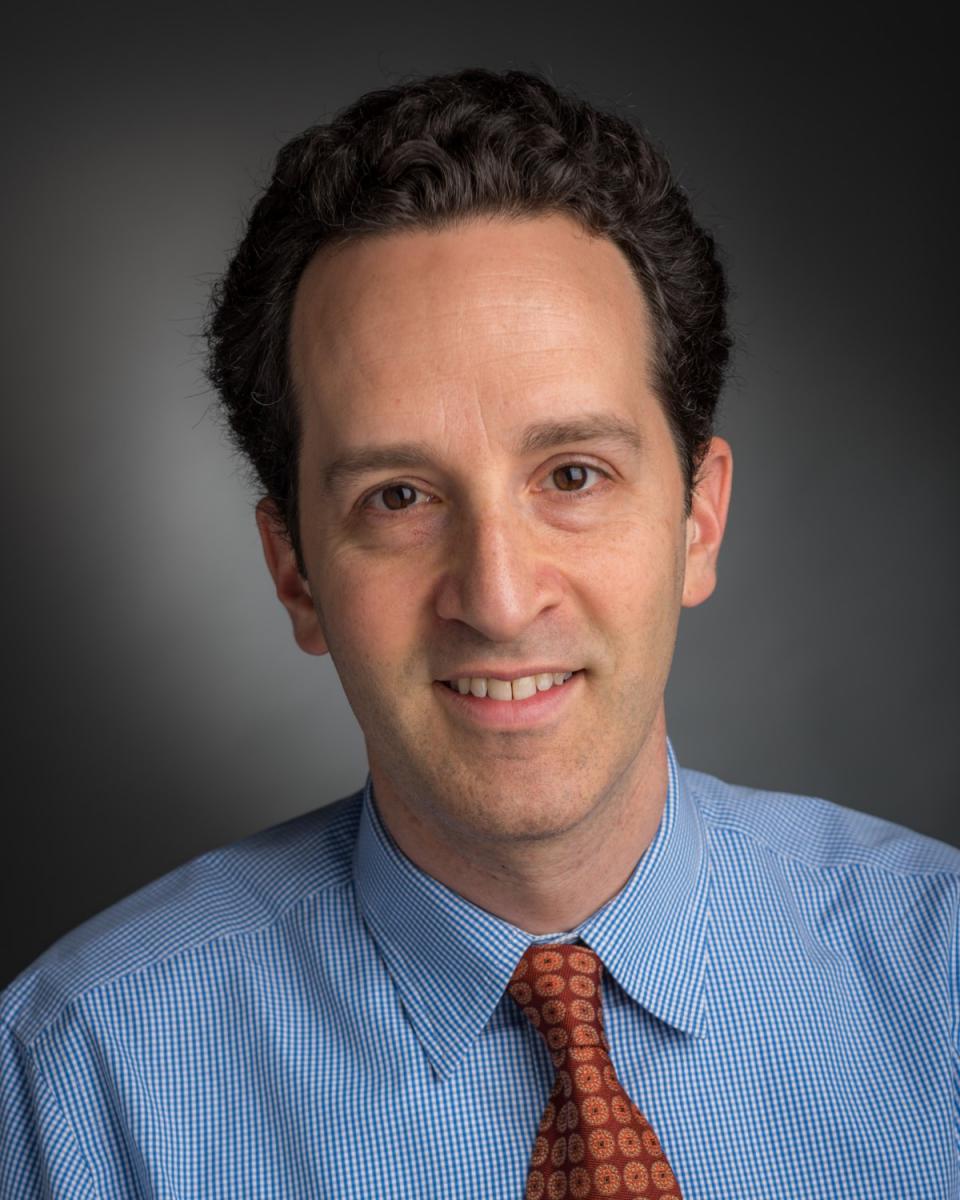
Daniel E. Bauer, M.D., Ph.D.
Harvard Medical School and Dana-Farber/Boston Children’s Cancer and Blood Disorders Center
Project Title: High-Throughput Discovery of Essential Noncoding Sequences for Erythropoiesis
Grant ID: DP2-HL-137300
Daniel Bauer is an assistant professor in pediatrics at Harvard Medical School and staff physician at the Dana-Farber/Boston Children’s Cancer and Blood Disorders Center. His research program integrates genetic, epigenetic, and functional genomic methodologies to understand the determinants of blood cell development and develop innovative therapeutic strategies for blood disorders. He received his ScB in Biology from Brown University and MD/PhD from the University of Pennsylvania where his graduate work in the lab of Craig Thompson focused on the role of glucose metabolism and lipid biosynthesis in the growth of normal and malignant hematopoietic cells. Following clinical training in pediatrics and pediatric hematology/oncology at Boston Children’s Hospital and Dana-Farber Cancer Institute, he performed post-doctoral work in Stuart Orkin’s lab where he identified an erythroid enhancer element of the BCL11A gene that is a critical regulator of fetal hemoglobin level and a potential therapeutic target for the ß-hemoglobin disorders. He is the recipient of awards from the American Society of Hematology, Burroughs Wellcome Fund, and Doris Duke Charitable, Charles H. Hood and Cooley’s Anemia Foundations.
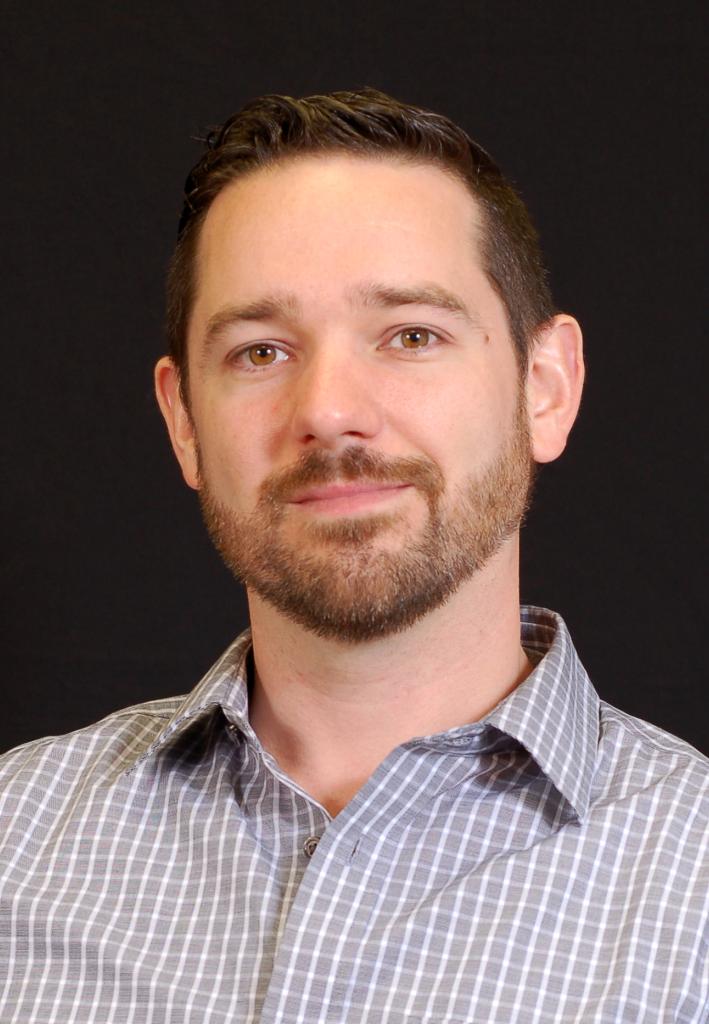
Sean Bendall, Ph.D.
Stanford University, School of Medicine
Project Title: Origins of Human Blood Lineages in Regenerative Medicine
Grant ID: DP2-EB-024246
Sean is currently an Assistant Professor in the Department of Pathology at Stanford University School of Medicine. Sean completed his B.Sc. in Biochemistry with a specialization in mass spectrometry-based proteomics at the University of Victoria, Canada. He went onto a Ph.D. in the Department of Biochemistry at the University of Western Ontario, Canada where his thesis work focused on the identification of intrinsic and extrinsic regulators of the human embryonic stem cell state with Mick Bhatia & Gilles Lajoie. Sean came to Stanford as a CIHR and Damon Runyon postdoctoral fellow with Garry Nolan where he developed new single cell proteomic technologies for analysis of the human hematopoietic immune system. Now, his lab continues to push the boundaries on single cell analysis and subcellular imaging, addressing questions in problems surounding human immunology, regenerative medicine, and stem cell biology.
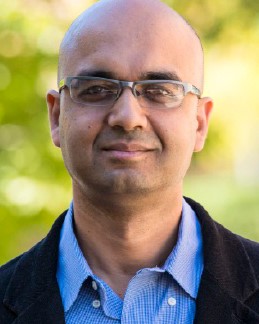
Parijat Bhatnagar, Ph.D.
SRI International
Project Title: Self-Assembled Therapeutics with Spatiotemporal Resolution
Grant ID: DP2-EB-024245
Parijat Bhatnagar is the Program Director for Cell-based Medicine in the Biosciences Division at SRI International. His research is in developing cellular therapeutics that can actively seek disease microenvironments, assess the disease burden, and synthesize proportionate amounts of therapeutic peptides upon engaging the molecular antigens on disease cells. He is also developing technologies for scaling up the manufacturing of these therapeutic cells. His post-doctoral training was in T-cell engineering at MD Anderson Cancer Center with a joint position at Houston Methodist Research Institute, where he developed approaches for imaging adoptively transferred T cells. He holds a PhD in Biomedical Engineering from Cornell University. His thesis was on microfabrication of photoactivatable biomaterials and micro-electro-mechanical systems.
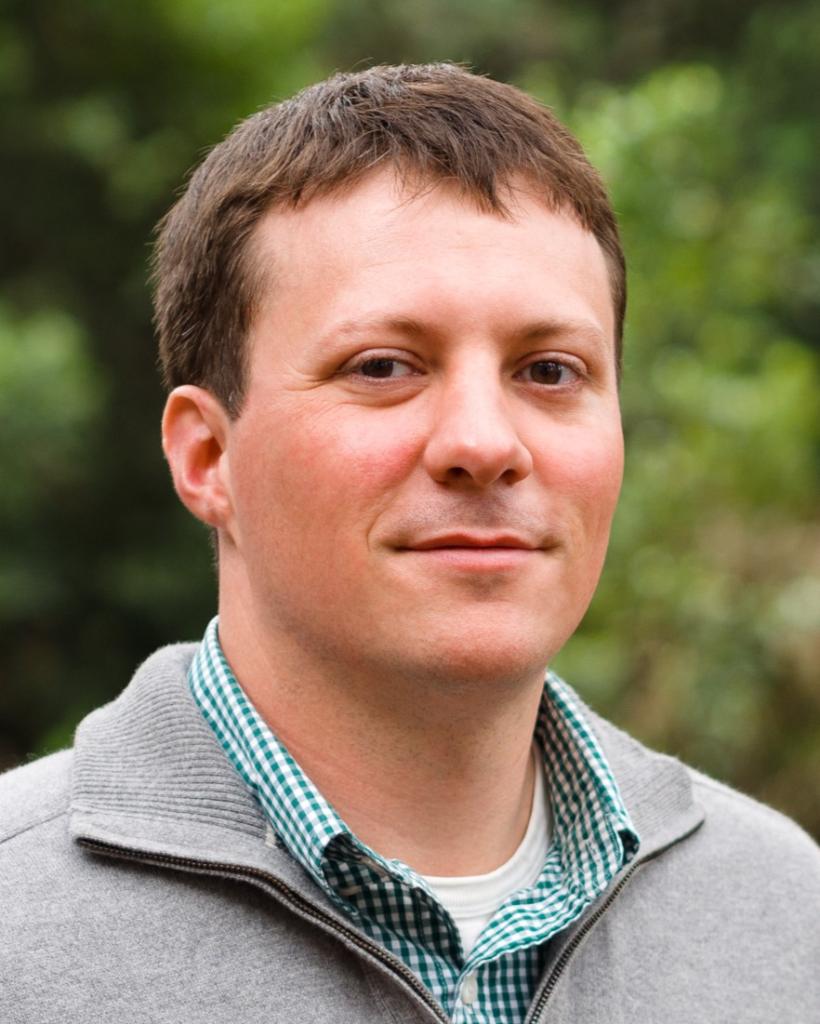
Stephen Brohawn, Ph.D.
University of California, Berkeley
Project Title: New Approaches to Understanding Biological Force Sensation
Grant ID: DP2-GM-123496
Stephen Brohawn received his B.S. in Biochemistry from the University of Delaware in 2004. In 2010, he received his Ph.D. in Biology from the Massachusetts Institute of Technology after conducting his thesis work in the laboratory of Thomas Schwartz where he studied the structure and function of the nuclear pore complex. He then joined Dr. Roderick MacKinnon’s laboratory at the Rockefeller University as a postdoctoral fellow of the Helen Hay Whitney Foundation where he characterized the physical, mechanistic and cellular basis of ion channels that sense mechanical force. Stephen is currently an Assistant Professor in the Department of Molecular & Cellular Biology and the Helen Wills Neuroscience Institute at the University of California, Berkeley where his lab studies molecular and cellular principles of electrical signaling and sensory transduction. Stephen is also a Klingenstein-Simons Neuroscience Fellow.
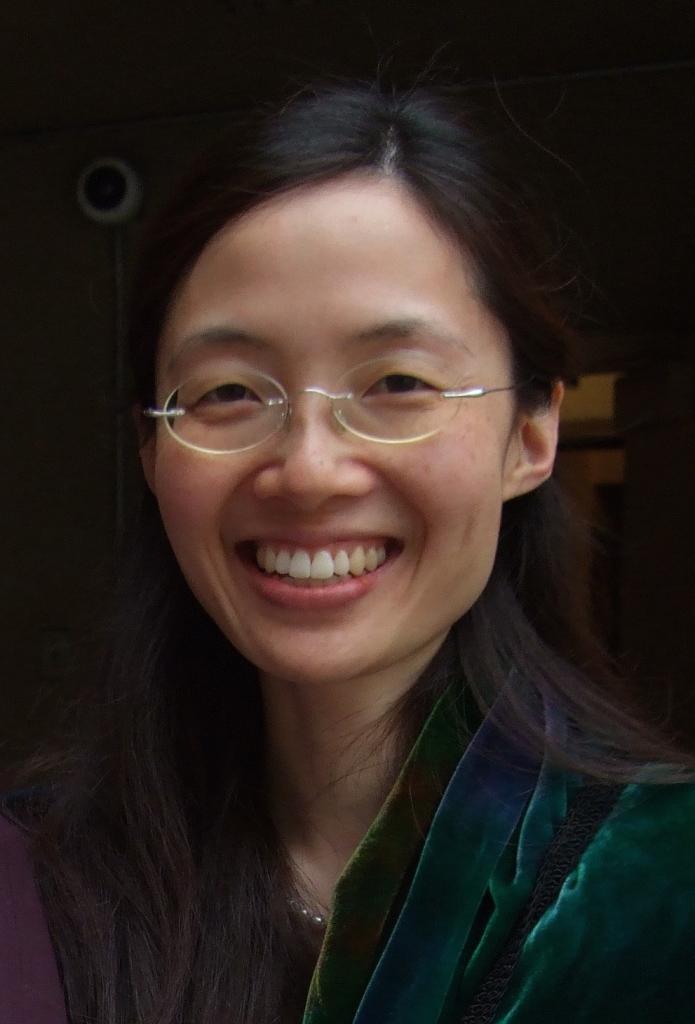
Irene A. Chen, M.D., Ph.D.
University of California, Santa Barbara
Project Title: Understanding How Bacteriophages Affect Wound Ecologies and Developing New Tools to Harness Bacteria-Phage Interactions
Grant ID: DP2-GM-123457
Funded by the National Institute of General Medical Sciences
Irene Chen is an assistant professor in the Department of Chemistry and Biochemistry at UCSB. She received an A.B. in Chemistry, M.D., and Ph.D. in Biophysics from Harvard University. As a graduate student she worked with Jack Szostak to build simple cells and understand their emergent properties. She then joined the Bauer Fellows Program in systems biology at Harvard, where she studied RNA replication and evolution related to the origin of life. She began her lab at UCSB in 2013, where her group continues to study RNA evolution and has recently begun to study bacteriophages and their possible applications.
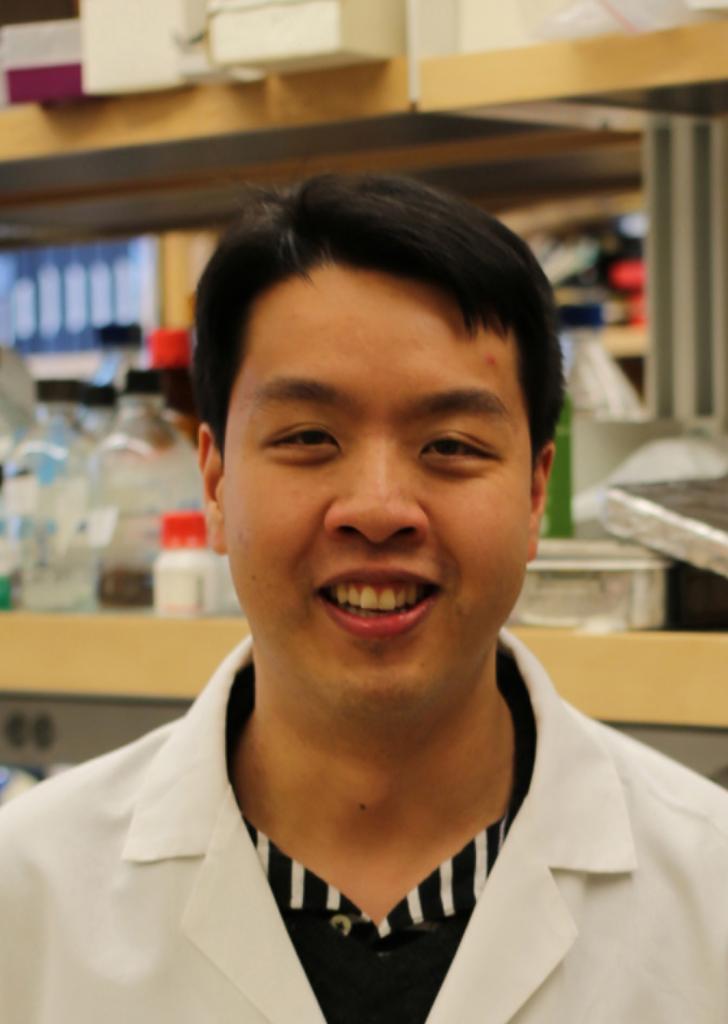
Isaac Chiu, Ph.D.
Harvard Medical School
Project Title: Sensory Neuron-Bacteria Interactions in Modulating Pain and the Host Microbiota
Grant ID: DP2-AT-009499
Isaac Chiu is an assistant professor in the Department of Microbiology and Immunobiology at Harvard Medical School. He graduated with an A.B. in Biochemistry in 2002 from Harvard College, having worked through his undergraduate years in Professor Jack Strominger’s laboratory on the intracellular trafficking of immune molecules. He received his Ph.D. in Immunology in 2009 from Harvard Medical School under the guidance of Prof. Michael Carroll, where he worked on the role of microglia in Amyotrophic Lateral Sclerosis (ALS), and continued this work on neuro-inflammation as a postdoctoral fellow in Prof. Tom Maniatis’s laboratory. He then trained as a research fellow on the Neurobiology of Pain in Prof. Clifford Woolf’s laboratory at Boston Children’s Hospital. Dr. Chiu and his laboratory aims to understand how symbiotic and pathobiotic bacteria within the commensal microbiota interface with the sensory nervous system to modulate pain and inflammation.
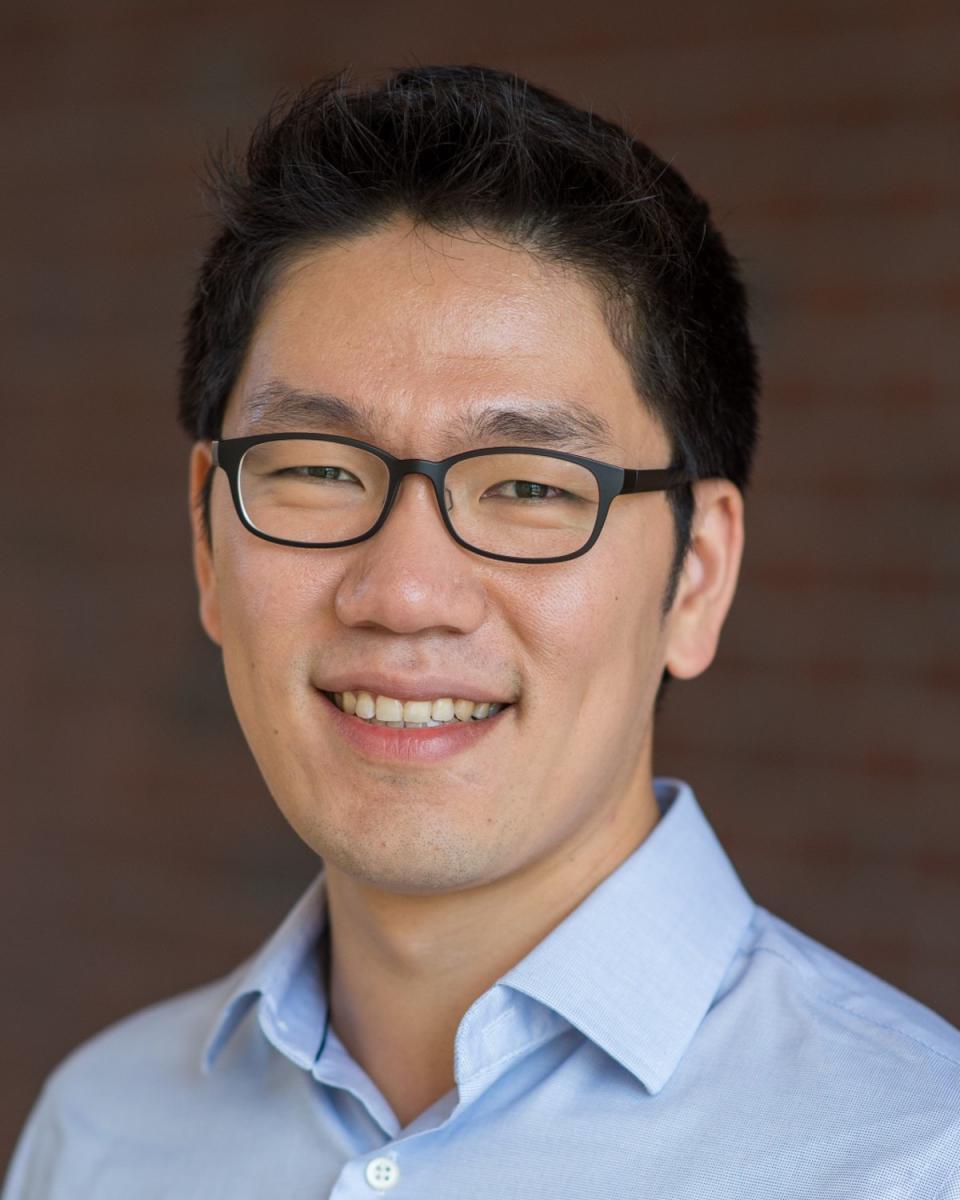
Kwanghun Chung, Ph.D.
Massachusetts Institute of Technology
Project Title: Proteome-Driven Holistic Reconstruction of Organ-Wide Multi-Scale Networks
Grant ID: DP2-ES-027992
Kwanghun Chung is currently the Samuel A. Goldblith Career Development Assistant Professor of Chemical Engineering at MIT, as well as a Core Member of the Institute for Medical Engineering and Science (IMES). He is also a Core Member of the Picower Institute for Learning and Memory, and an Associate Member of the Broad Institute. He received his B.S. in Chemical Engineering from Seoul National University in 2005, and then moved to Georgia Institute of Technology for his Ph.D. training under the mentorship of Dr. Hang Lu, where he developed automated and integrated microsystems for high-throughput imaging, molecular/behavioral phenotyping, and cell microsurgery of a broad range of living systems. Following his graduation in 2009, Dr. Chung joined the Karl Deisseroth Lab at Stanford University for post-doctoral training in 2010, where he invented a novel technology termed CLARITY, which enables system-wide structural and molecular analysis of large-scale intact biological samples. In 2013, Dr. Chung established his independent group at MIT and has been leading an interdisciplinary team to develop and apply novel technologies for holistic understanding of large-scale complex biological systems. Chung was the recipient of the Mcknight Technological Innovations in Neuroscience Award 2016, the Packard Fellowships for Science and Engineering Award 2015, the NARSAD Young Investigator Award 2015, the Yumin Awards for Creativity 2014, the Searle Scholars Award 2014, and the BWF Career Award at the Scientific Interface 2012.
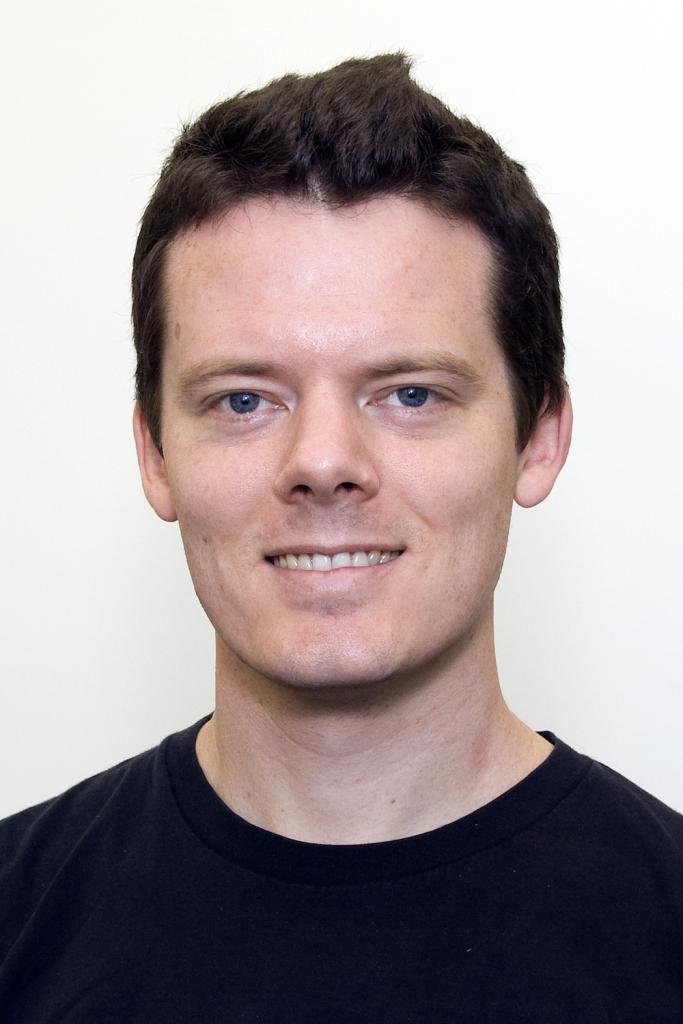
Forrest W. Crawford, Ph.D.
Yale School of Public Health
Project Title: Network-Based Epidemiology for Hidden and Hard-to-Reach Populations
Grant ID: DP2-HD-091799
Funded by the Big Data to Knowledge initiative
Forrest W. Crawford PhD received his BA in Neuroscience from Oberlin College, and his PhD in Biomathematics from the University of California Los Angeles. He is currently Assistant Professor in the Department of Biostatistics, Yale School of Public Health and Department of Ecology & Evolutionary Biology, Yale University. He is affiliated with the Center for Interdisciplinary Research on AIDS, the Yale Institute for Network Science, the Yale Computational Biology and Bioinformatics program, and the Operations doctoral program at the Yale School of Management. His research interests include networks, graphs, stochastic processes, and optimization, with applications in epidemiology, public health, and social science.
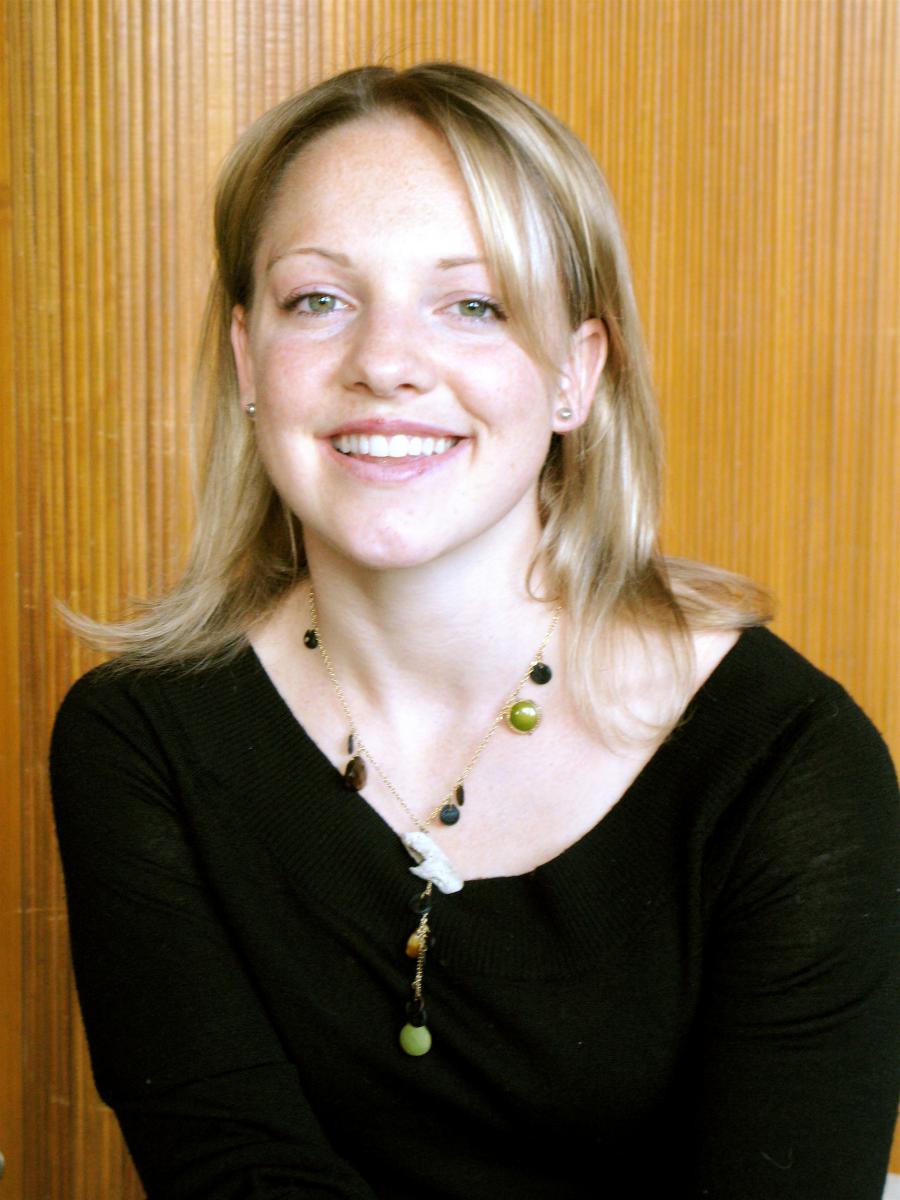
Alia Crum, Ph.D.
Stanford University
Project Title: Harnessing Mindset in 21st Century Healthcare
Grant ID: DP2-AT-009511
Dr. Alia Crum is an Assistant Professor of Psychology at Stanford University. She received her PhD in Psychology from Yale University where she worked with Dr. Peter Salovey and Dr. Kelly Brownell. Inspired by research on the placebo effect, Dr. Crum’s research was the first to reveal the physiological effects of mindset in core areas of behavioral health including the benefits of exercise, the metabolic processing of nutrients, and the effects of stress. Dr. Crum’s research helps move us beyond the limited notion of the placebo effect as a mysterious response to an inert substance toward the recognition that ultimately our beliefs and expectations are responsible for physiological responses. As the director of the Mind & Body Lab and the health director at Stanford SPARQ (Social Psychological Answers to Real-world Questions), Dr. Crum leads a team of researchers aiming to better define the role social and psychological forces play in overcoming chronic disease with the goal of empowering individuals and health-care practitioners to harness these forces in the prevention and treatment of our most difficult public health challenges.
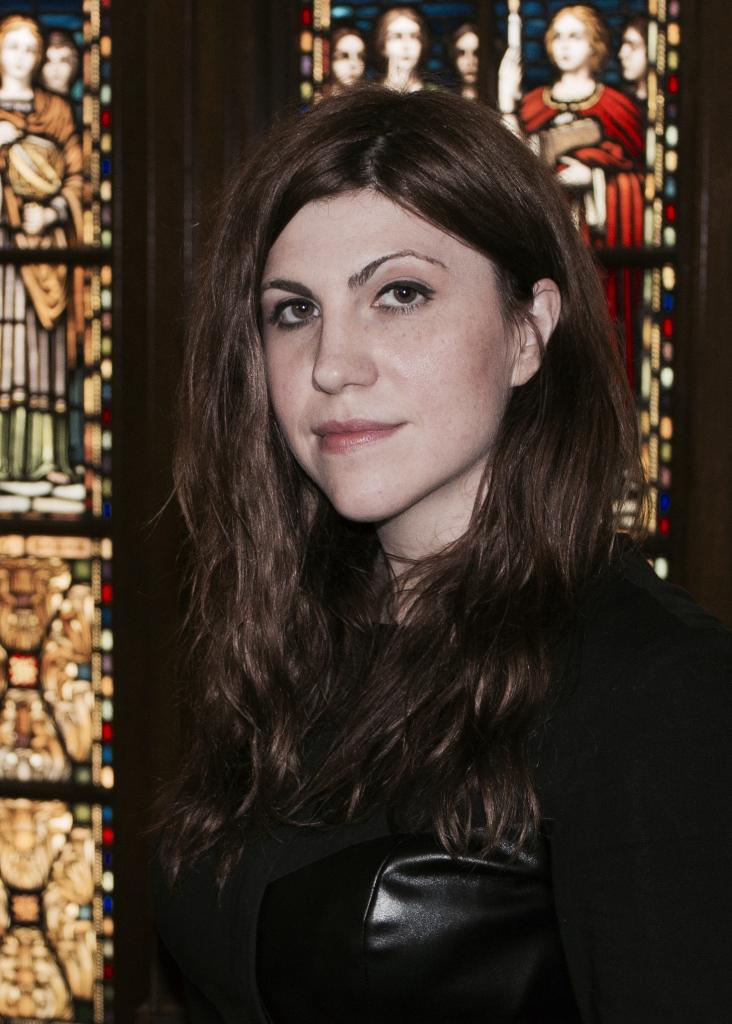
Monica Dus, Ph.D.
The University of Michigan
Project Title: The Role of Neuroepigenetics in Bidirectional Behavioral States
Grant ID: DP2-DK-113750
Monica Dus joined the faculty of the Department of Molecular, Cellular, and Developmental Biology at The University of Michigan, Ann Arbor as an assistant professor and head of the Dus lab in 2015. She received a Ph.D. in Biology from the Watson School of Biological Sciences at Cold Spring Harbor Laboratory, where she studied the role of small noncoding RNAs in transposon control and genome stability with Dr. Gregory Hannon. Her postdoctoral work at the Skirball Institute of Biomolecular Medicine at the NYU School of Medicine uncovered how brain circuits sense nutrients to drive feeding decisions. At the University of Michigan the Dus lab studies how the environment, especially diet, leads to persistent changes in behavior by regulating the expression of genetic information within neurons through neuroepigenetic mechanisms. In addition to the NIH Director’s New Innovator Award, Dr. Dus received a NIH Pathway to Independence Award and the Klingenstein-Simons Fellowship Award in the Neurosciences; she is also a Rita Allen Milton Cassel Scholar and a NARSAD Young Investigator.
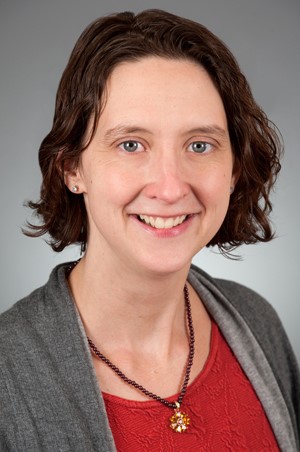
Elizabeth S. Egan, M.D., Ph.D.
Stanford University School of Medicine
Project Title: Identifying Critical Erythrocyte Host Factors for Plasmodium falciparum Malaria
Grant ID: DP2-HL-137186
Elizabeth S. Egan received her B.A. from Barnard College of Columbia University after which she spent 18 months working in William Talbot’s laboratory studying pattern formation in zebrafish. She received her M.D./Ph.D. from Tufts University School of Medicine. As a graduate student working with Matthew Waldor she investigated the genetic determinants and dynamics of multi-chromosome replication in Vibrio cholerae. After her clinical training at Boston Children’s Hospital, she joined Manoj Duraisingh’s laboratory at Harvard School of Public Health through the Pediatric Scientist Development Program. During her postdoc she developed a forward genetic screen to identify host factors for Plasmodium falciparum malaria. Dr. Egan became an Assistant Professor in the Department of Pediatrics at Stanford in 2015, where her work focuses on understanding host erythrocyte determinants of malaria infection.
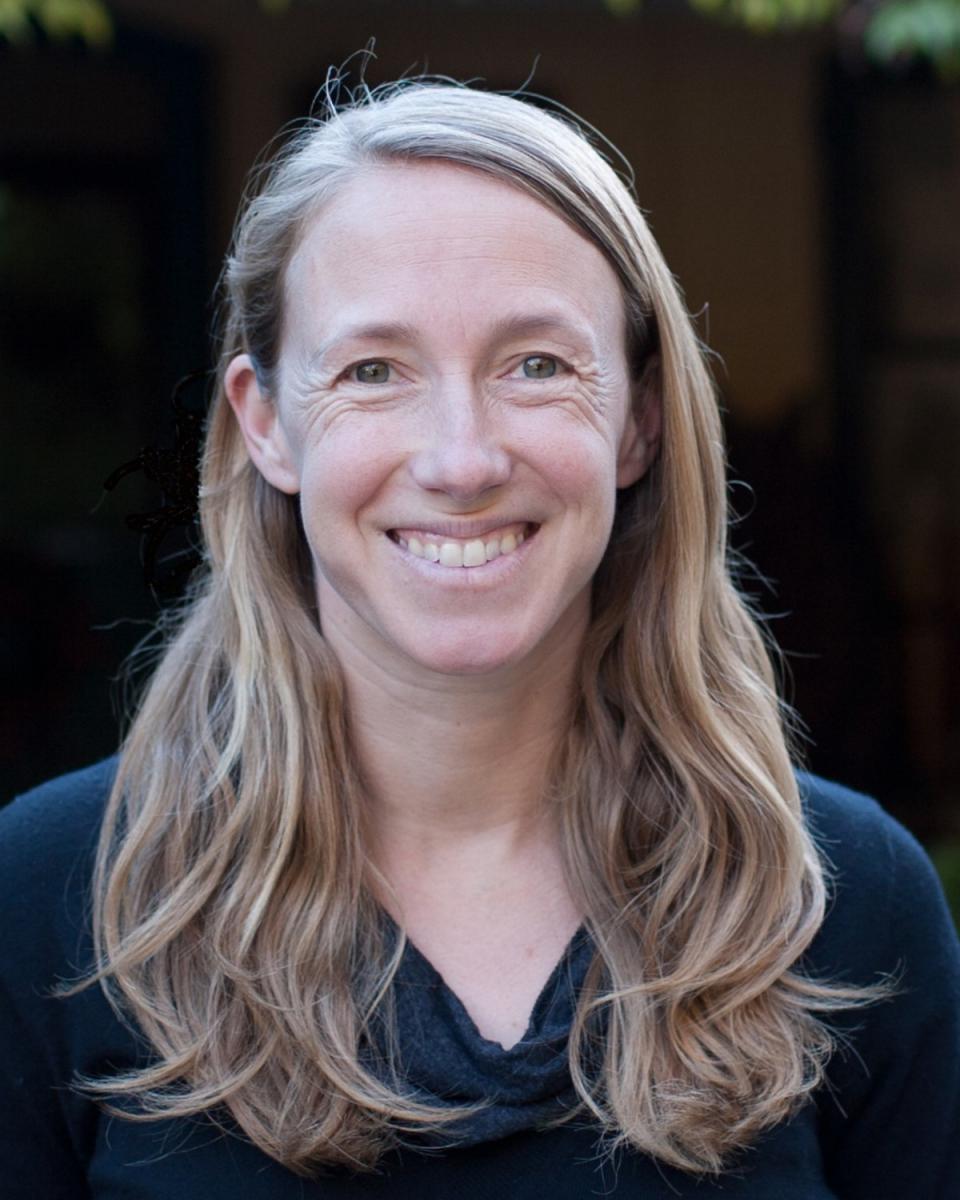
Polly Fordyce, Ph.D.
Stanford University
Project Title: Leveraging Spectral Encoding for High Dimensional Biological Multiplexing
Grant ID: DP2-GM-123641
Polly Fordyce is an Assistant Professor in the Departments of Genetics and Bioengineering and the ChEM-H Institute at Stanford University. She received undergraduate degrees in Physics and Biology from the University of Colorado at Boulder before moving to Stanford University, where she earned a Ph.D. in Physics for work in Steve Block’s laboratory developing new single-molecule instrumentation and assays. For her postdoctoral research, she joined Joe DeRisi’s laboratory at UCSF, where she developed and applied new microfluidic tools for understanding transcription factor target specificity. In 2014, she launched her independent laboratory at Stanford University, where she and her team focus on developing new microfluidic technologies for high-throughput biophysical characterization of molecular interactions. She is the recipient of a Helen Hay Whitney Fellowship, a McCormick and Gabilan Fellowship, and a Pathway to Independence Award from the NIH.
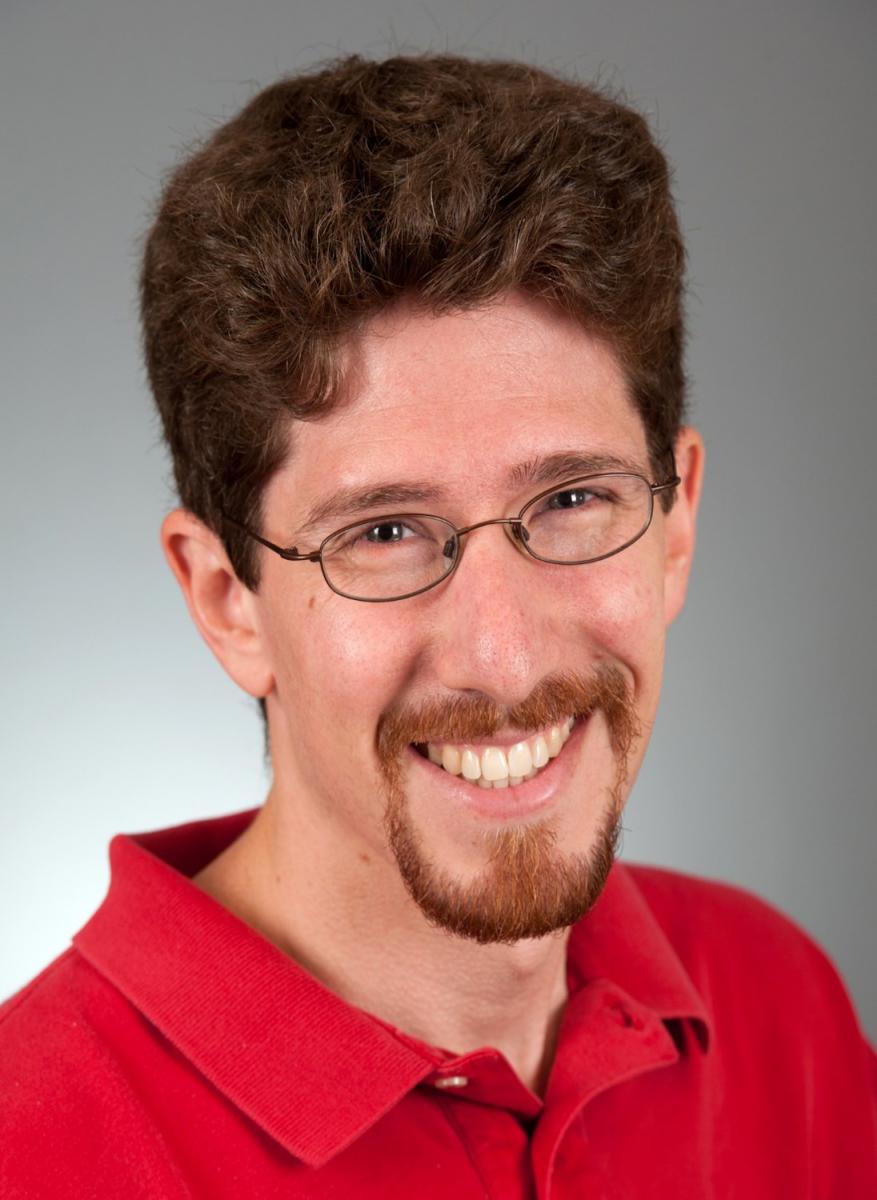
Eric Lieberman Greer, Ph.D.
Harvard Medical School and Boston Children’s Hospital
Project Title: Characterization of DNA N6-Methyl Adenine and Its Role in Epigenetic Memory
Grant ID: DP2-AG-055947
Eric Greer graduated from Case Western Reserve University with a B.A. in Biochemistry, and from Stanford Medical School with a Ph.D. in Cancer Biology from Anne Brunet’s lab. As a graduate student Eric identified molecular mechanisms that regulate longevity and showed that longevity could be transmitted in a non-genetic manner to descendants. As a post-doc in Yang Shi’s lab at Harvard Medical School he studied the mechanisms of transgenerational epigenetic inheritance. He identified methylation on the N6 position of adenines in DNA (6mA), a modification that was previously thought to be restricted to single celled organisms, as a new epigenetic modification in metazoa that might play a role in the inheritance of non-genetic information. The Greer lab at Boston Children’s Hospital and Harvard Medical School is studying the role of 6mA on gene expression and inheritance of epigenetic information. They are also interested in understanding the crosstalk between DNA methylation and histone modifications and how it influences chromatin accessibility in germ cells and somatic cells.
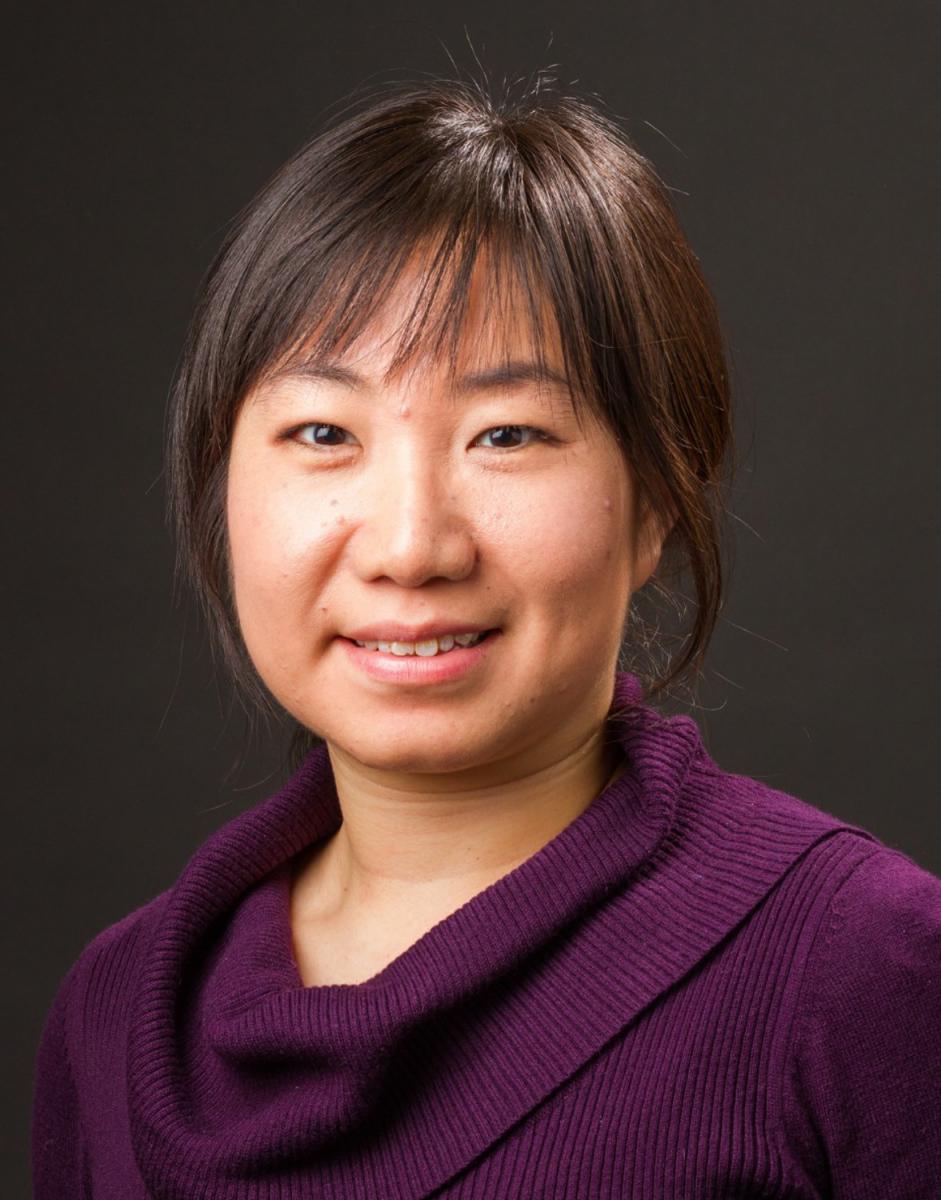
Shangqin Guo, Ph.D.
Yale University
Project Title: Molecular Definition of Cancer Cell-of-Origin
Grant ID: DP2-GM-123507
Shangqin Guo is an Assistant Professor in the Department of Cell Biology and Yale Stem Cell Center. She received her B.S. from Sichuan University, Chengdu, China, and Ph.D. from Boston University School of Medicine. She studied hematopoietic stem and progenitor cell biology during her postdoctoral training in the laboratory of Dr. David Scadden. The Guo lab strives to understand the rules of cell fate determination. She is the recipient of Stem Cells Young Investigator Award in 2014, Gilead Sciences Research Scholar in Hematology/Oncology in 2015, and Charles H. Hood Foundation Child Health Research Award in 2016.
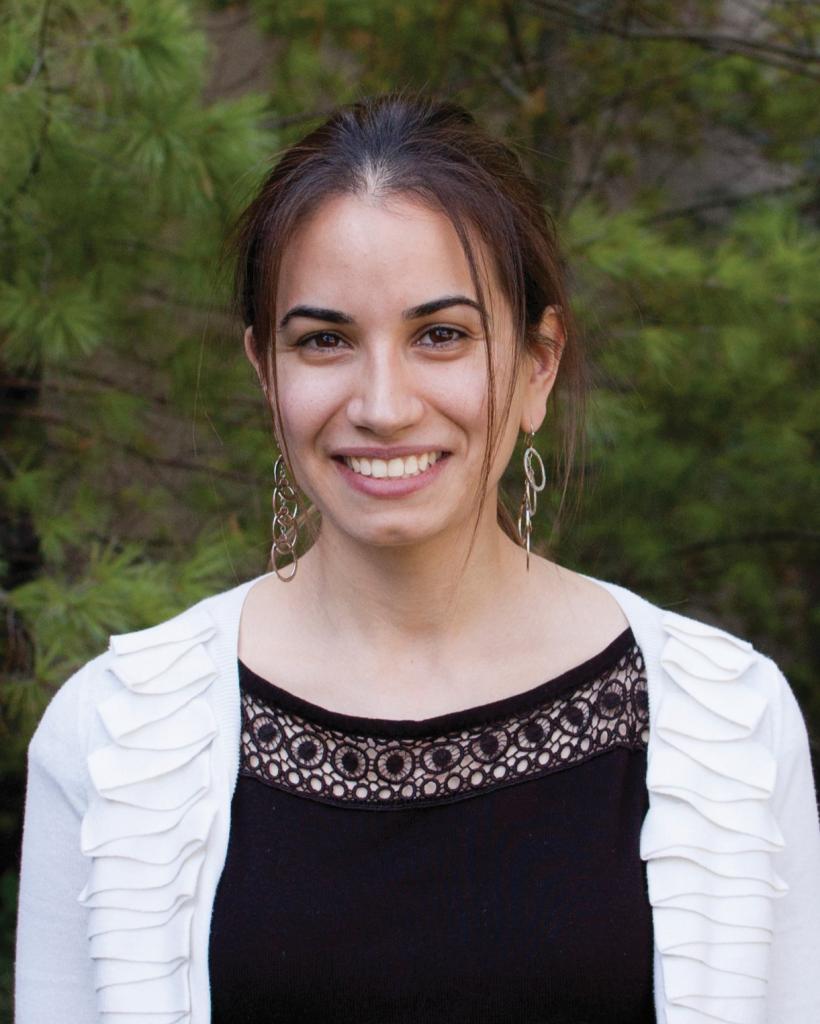
Sue Hammoud, Ph.D.
University of Michigan
Project Title: Contributions of Sperm Chromatin to Development: A Myth or Reality?
Grant ID: DP2-HD-091949
Sue Hammoud is an Assistant Professor at University of Michigan in the Department of Human Genetics. Dr. Hammoud received her Ph.D. at the University of Utah. As a graduate student working with Drs. Brad Cairns and Douglas Carrell, Sue demonstrated that the paternal contribution to the embryo extends far beyond paternally imprinted genes and the genomic DNA sequence in sperm – encompassing histone modifications and small RNAs. As a postdoctoral Helen Hay Whitney fellow in the Cairns and Jones lab at the Huntsman Cancer Institute she has explored how chromatin regulates germline stem cell development and tissue homeostasis. Currently, Dr. Hammoud’s lab is investigating the cellular and genetic factors required to make a healthy and developmentally competent gamete.
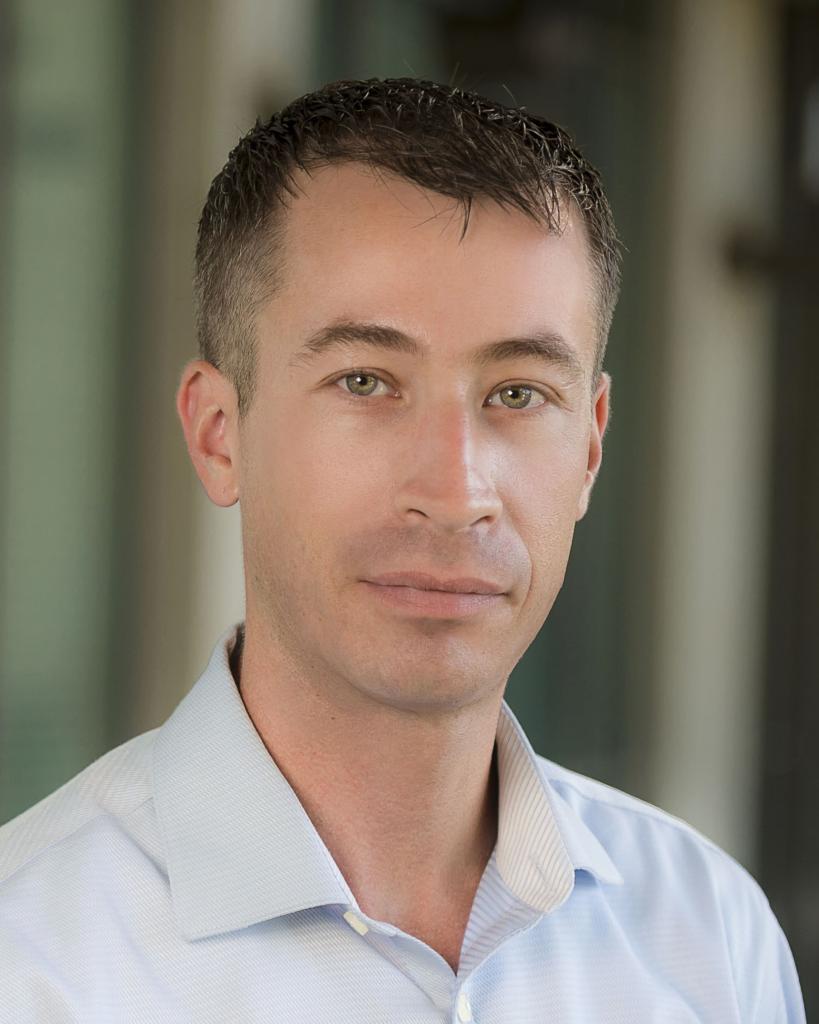
Jesse V. Jokerst, Ph.D.
University of California, San Diego
Project Title: Therapeutic Drug Monitoring with a Wearable Ultrasound-Based Sensor
Grant ID: DP2-HL-137187
Jesse Jokerst received a B.S. in chemistry from Truman State University (Kirksville, Missouri) and a Ph.D. in chemistry from The University of Texas at Austin in 2009 with John T. McDevitt. Jesse then completed postdoctoral training with Sanjiv Sam Gambhir at Stanford University Department of Radiology where he developed novel ultrasound and photoacoustic molecular imaging approaches to study ovarian cancer and monitor stem cell therapy. His current research emphasizes novel nanoparticle probes as acoustic contrast agents including hybrid imaging approaches utilizing wearable technologies. Jesse joined the Department of NanoEngineering at UC San Diego as an Assistant Professor in 2015 and is the previous recipient of the American Cancer Society Postdoctoral Fellowship and the NIH Pathway to Independence Award.
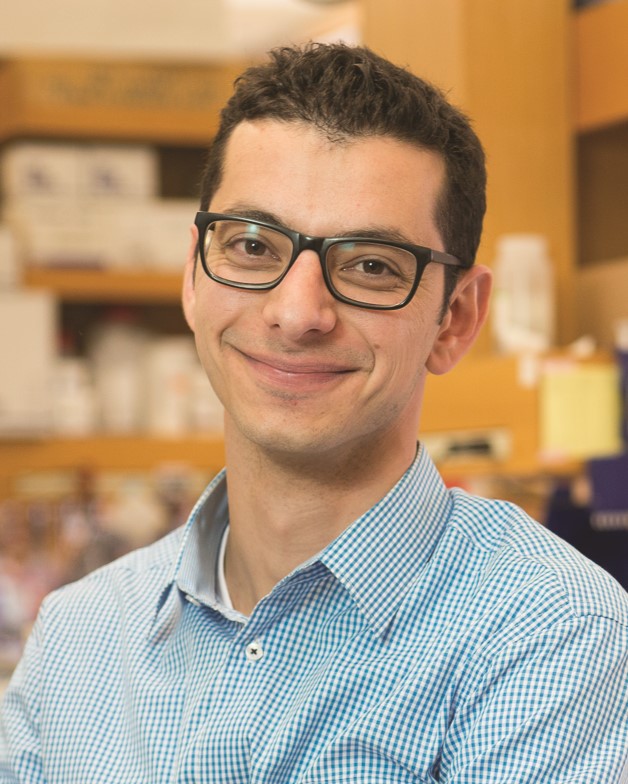
Ahmad S. Khalil, Ph.D.
Boston University
Project Title: Combatting Antibiotic Resistance with Synthetic Biology Technologies
Grant ID: DP2-AI-131083
Ahmad (Mo) Khalil is an Assistant Professor of Biomedical Engineering, and Associate Director and Founding Member of the Biological Design Center at Boston University. He is also a Visiting Scholar at the Wyss Institute for Biologically Inspired Engineering at Harvard University. His laboratory is interested in how genetic networks give rise to complex cellular behaviors, and they develop synthetic biology approaches to study and control these cellular systems. Mo was an HHMI Postdoctoral Fellow with Dr. James Collins at Boston University. He completed his Ph.D. with Dr. Angela Belcher at MIT. He graduated Phi Beta Kappa from Stanford University with a B.S. in Mechanical Engineering and a minor in Chemistry.
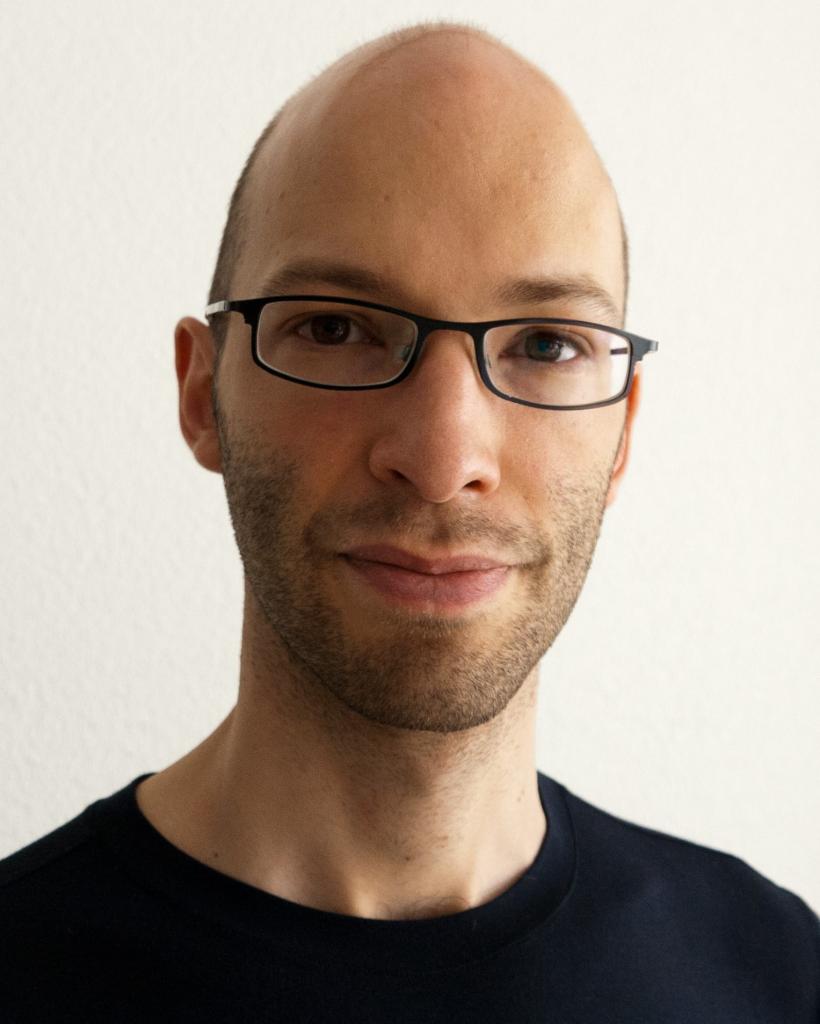
Sebastian Klinge, Ph.D.
The Rockefeller University
Project Title: Trapping and Reconstituting Early Stages of Eukaryotic Ribosome Assembly
Grant ID: DP2-GM-123459
Funded by the National Institute of General Medical Sciences
Sebastian Klinge received his Ph.D. in biochemistry from the University of Cambridge in 2009. As a postdoc he studied eukaryotic protein synthesis by X-ray crystallography and determined the first atomic structure of the large eukaryotic ribosomal subunit. Since 2013, he is an Assistant Professor and Head of the Laboratory of Protein and Nucleic Acid Chemistry at The Rockefeller University. His laboratory combines genetic, biochemical and structural biology techniques to elucidate the mechanisms of eukaryotic ribosome assembly in yeast.

Amnon Koren, Ph.D.
Cornell University
Project Title: Personal Mutational Landscapes Encoded in Our DNA
Grant ID: DP2-GM-123495
Amnon Koren is an Assistant Professor and a Nancy and Peter Meinig Family Investigator in the Department of Molecular Biology and Genetics at Cornell University. He received his B.Sc. and M.A. from Tel-Aviv University, and his Ph.D. from The Weizmann Institute of Science under the guidance of Naama Barkai. He did his postdoctoral work with Judith Berman at the University of Minnesota, and with Steven McCarroll at Harvard Medical School and The Broad Institute. His research uses experimental and computational approaches to study the genomic regulation of DNA replication timing. In particular, his lab is utilizing human genetic variation to understand the molecular basis of DNA replication timing and its consequences for gene regulation, genome stability, and human phenotypes.
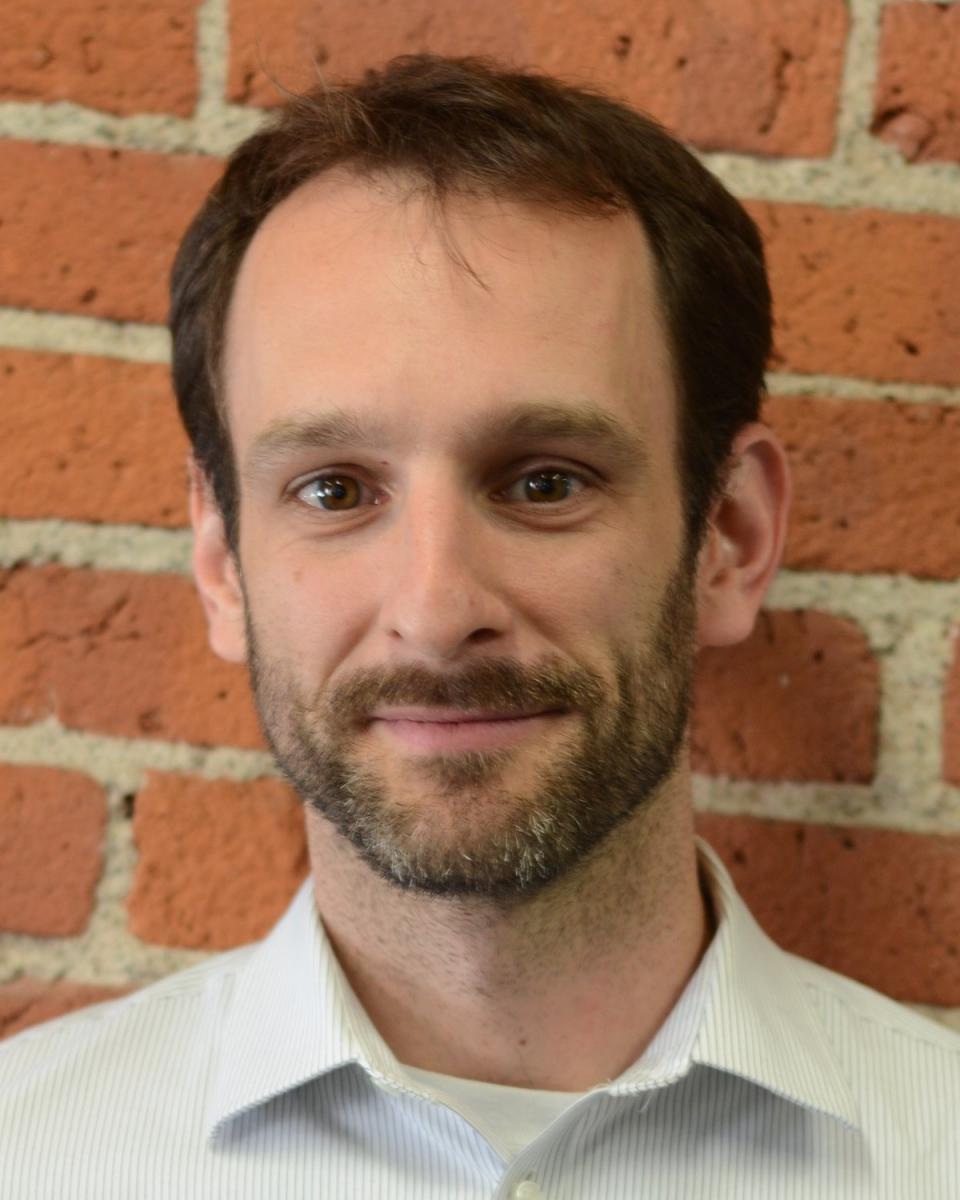
Joel Kralj, Ph.D.
University of Colorado – Boulder
Project Title: Neuronal Electromics in Health and Disease
Grant ID: DP2-GM-123458
Joel Kralj received his BS in Engineering Physics from Santa Clara University, followed by a PhD in physics at Boston University. His graduate studies focused on understanding the molecular motions underlying light induced proton pumping in rhodopsins with Prof Kenneth Rothschild. His postdoctoral research was performed with Prof Adam Cohen in the Harvard Chemistry and Chemical Biology department. With Prof Cohen, Joel created a new class of genetically encoded fluorescent sensors capable of optically measuring voltage in single cells. In his own lab in the BioFrontiers Institute and MCD Biology Department at CU-Boulder, Dr. Kralj is broadly interested in uncovering genome wide influences on cellular voltage in a variety of model systems.
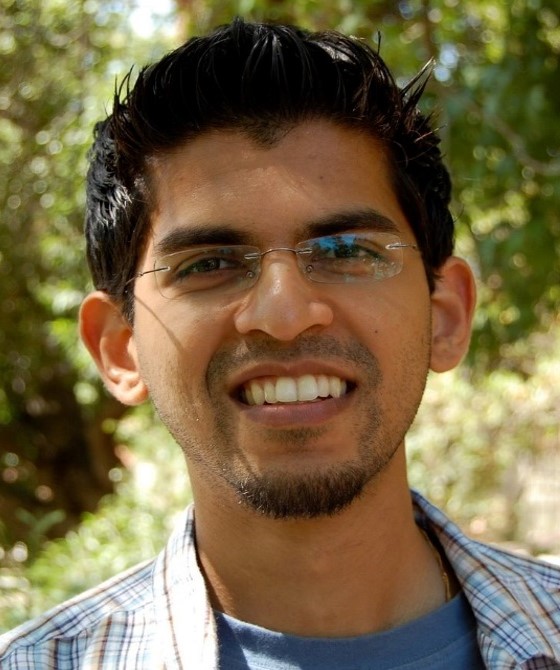
Anshul Kundaje, Ph.D.
Stanford University
Project Title: Deep Learning Frameworks for Regulatory Genomics
Grant ID: DP2-GM-123485
Funded by the Big Data to Knowledge initiative
Anshul Kundaje is an Assistant Professor of Genetics and Computer Science at Stanford University. His research focuses on deciphering the molecular and genetic basis of disease by integrative analysis of diverse types of large-scale genomic data. The Kundaje lab develops statistical and machine learning methods to decipher functional elements in the human genome, understand their role in gene regulation and cellular function across diverse cell types and interpret the molecular and phenotypic impact of natural and disease-associated genetic variation. Anshul received a PhD. in Computer Science in 2008 from Columbia University. As a postdoctoral fellow at Stanford University from 2012-2014 and a research scientist at MIT and the Broad Institute from 2012-2014, he led the integrative analysis efforts for two of the largest functional genomics consortia - The Encyclopedia of DNA Elements (ENCODE) and The Roadmap Epigenomics Project.
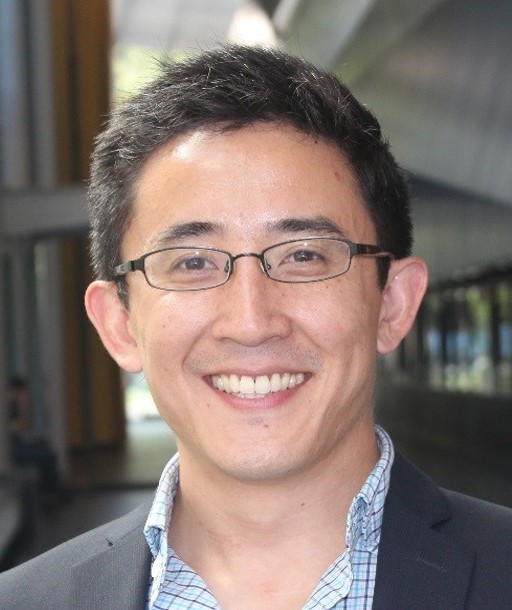
Gabe Kwong, Ph.D.
Georgia Tech and Emory
Project Title: Noninvasive and Predictive Biomarkers of Organ Transplant Rejection
Grant ID: DP2-HD-091793
Dr. Gabe Kwong joined the Department of Biomedical Engineering at Georgia Tech and Emory School of Medicine as an Assistant Professor in 2014. His research program is directed towards the advancement of human health by developing biomedical technologies that draw from the fields of Engineering and Immunology. He earned his B.S. in Bioengineering with Highest Honors from UC Berkeley, his Ph.D. from Caltech with Professor James R. Heath, and conducted postdoctoral work at MIT with Professor Sangeeta N. Bhatia. In recognition of his work, Dr. Kwong was named a “Future Leader in Cancer Research and Translational Medicine” by the Massachusetts General Hospital, and is the recipient of the NIH Ruth L. Kirschstein National Research Service Award, Burroughs Wellcome Fund Career Award at the Scientific Interface, and the NIH Director’s New Innovator Award. Dr. Kwong holds eight issued or pending patents, and has launched one biotechnology startup company.
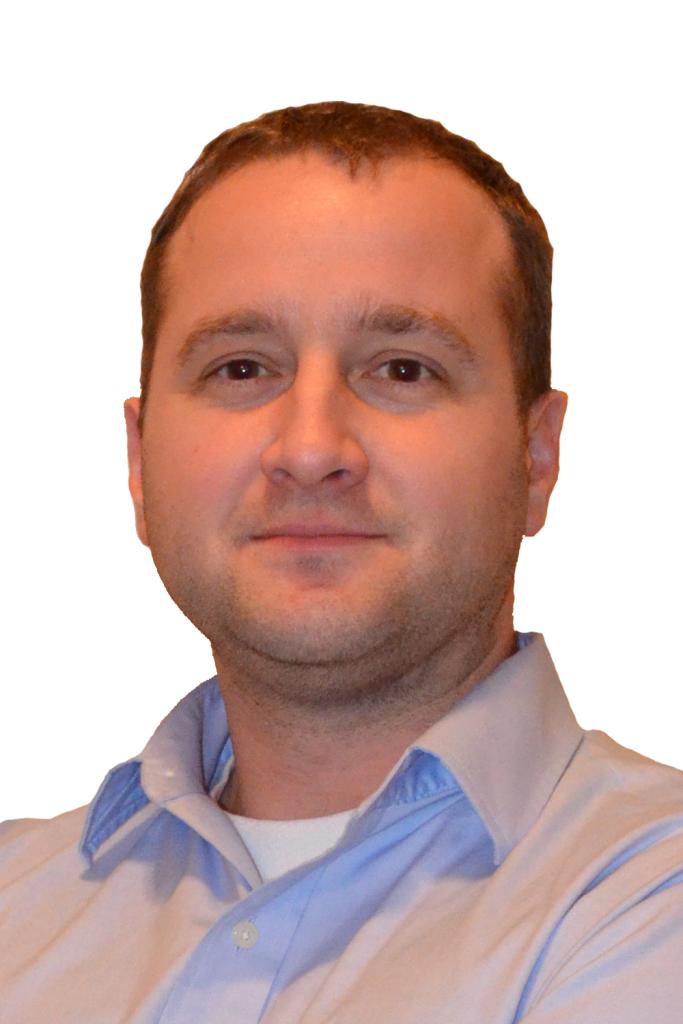
Arthur Laganowsky, Ph.D.
Texas A&M University
Project Title: Native Ion Mobility Mass Spectrometry Studies of Potassium Inward Rectifier Channels: Insight into Gating and Lipid Binding
Grant ID: DP2-GM-123486
Funded by the National Institute of General Medical Sciences
Arthur Laganowsky is an Assistant Professor at Texas A&M University. His laboratory focuses on membrane protein-lipid interactions, and how these interactions influence membrane protein structure and function. He received the Biochemistry Distinguished Dissertation Award for his doctoral work on structural studies of amyloid-related proteins in the laboratory of David Eisenberg at University of California Los Angeles. His postdoctoral work focused on ion mobility mass spectrometry of intact membrane protein complexes in the laboratory of Dame Carol V. Robinson at the University Oxford, and became a Nicholas Kurti Junior Research Fellow of Brasenose College.
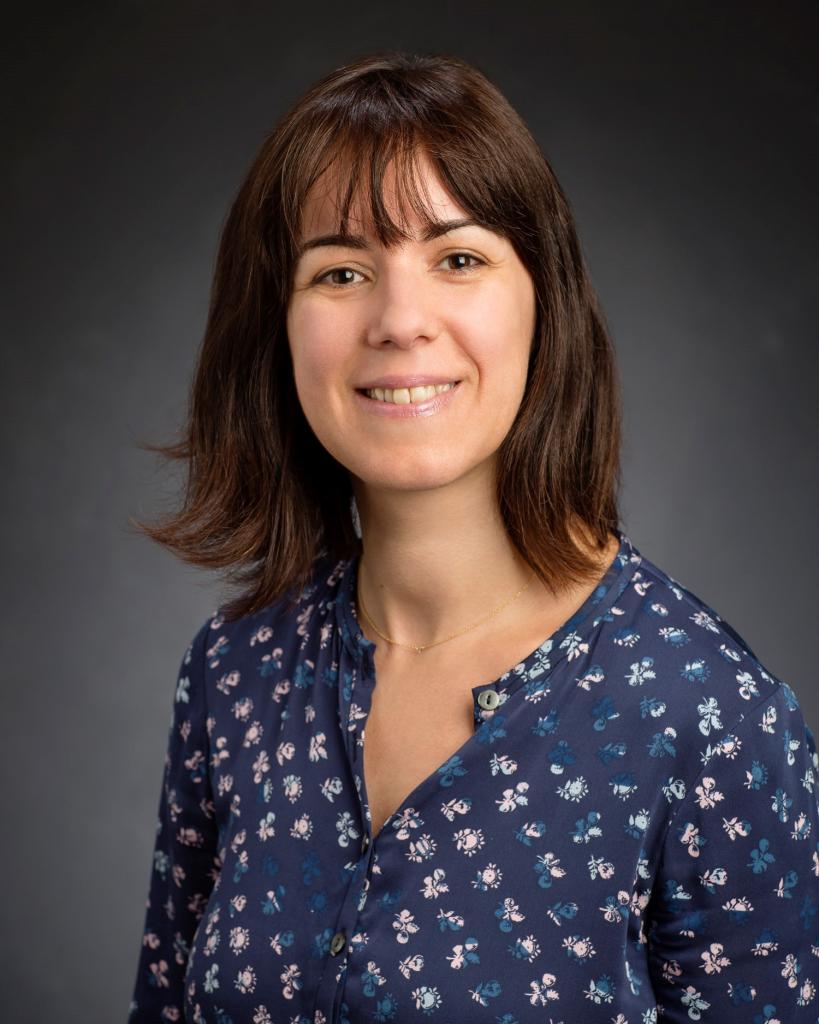
Cecília Leal, Ph.D.
University of Illinois at Urbana-Champaign
Project Title: A New Paradigm In Nanomedicine: Can Structural Interiors of Nanoparticles Regulate Cellular Delivery?
Grant ID: DP2-EB-024377
Cecília Leal is an Assistant Professor in the Department of Materials Science and Engineering and the Frederick Seitz Materials Research Laboratory at the University of Illinois, Urbana-Champaign since 2012. She graduated in Industrial Chemistry from Coimbra University in Portugal. Cecília moved to Sweden to receive her Ph.D. in physical chemistry from Lund University, supervised by Prof. Wennerström. After working for a year in the Norwegian Radium Hospital, she joined Prof. Safinya’s Lab at the University of California in Santa Barbara as a Vetenskapsrådet postdoctoral fellow. Her research interests focus on the characterization and functionalization of lipid materials for cellular delivery. In addition to the New Innovator award, she received the National Science Foundation CAREER award in 2016.
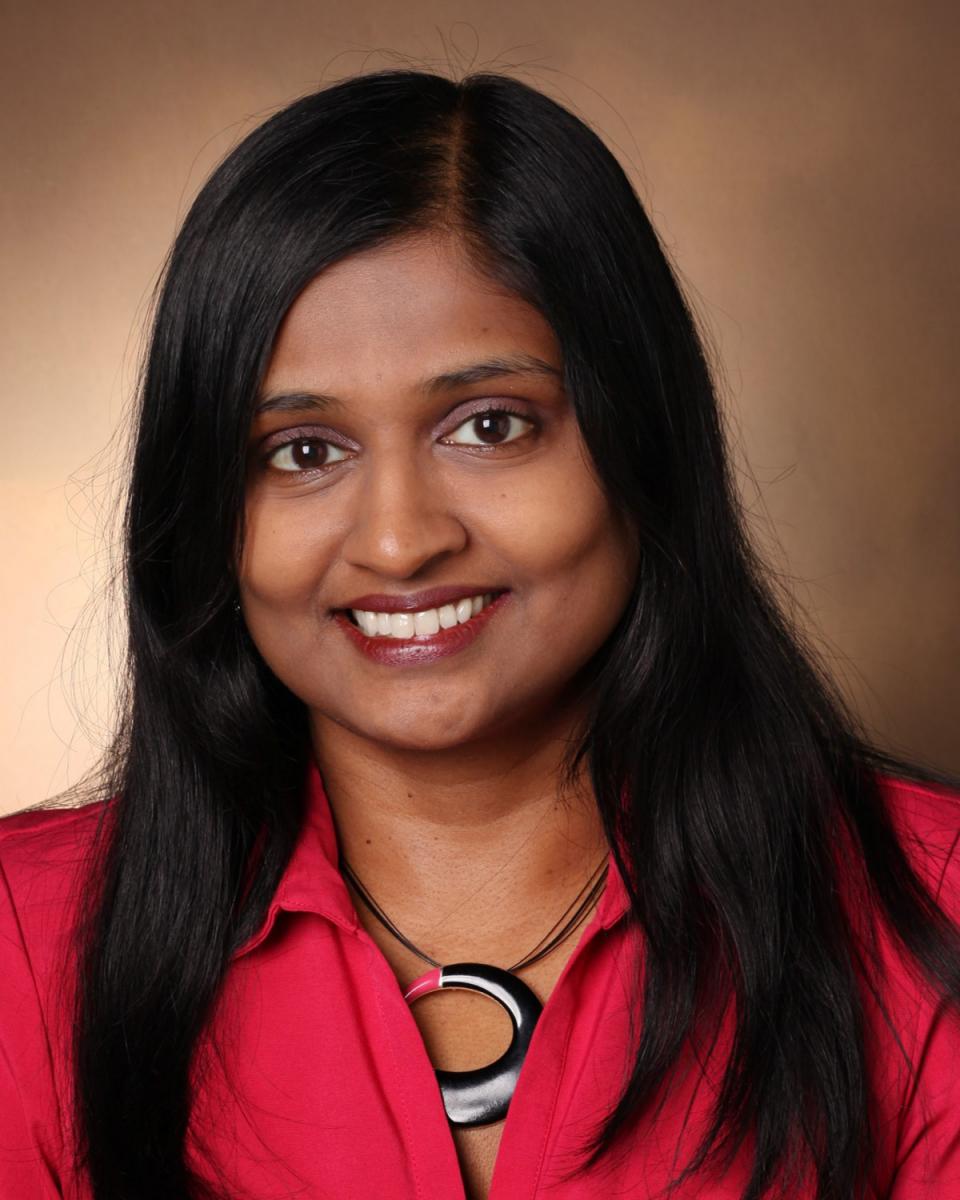
Meena S. Madhur, M.D., Ph.D.
Vanderbilt University
Project Title: Immunophenotyping of Human Hypertension Using Single Cell Multiplex Mass Cytometry to Identify Novel Therapeutic Targets
Grant ID: DP2-HL-137166
Meena Madhur received her B.S. in Biomedical Engineering and Biology from Duke University followed by M.D./Ph.D degrees from the University of Virginia. She then returned to Duke University for her internship and residency in Internal Medicine. In 2007, she joined the cardiology fellowship program at Emory University where, in the laboratory of Dr. David Harrison, she demonstrated for the first time that the newly discovered cytokine, interleukin 17 (IL-17), plays a critical role in hypertension and vascular dysfunction. In 2012, she began her tenure-track appointment as Assistant Professor of Medicine with a secondary appointment in the Department of Molecular Physiology and Biophysics at Vanderbilt University. Her lab currently investigates the role of the adaptive immune system and T cell derived cytokines such as IL-17, IL-21, and interferon gamma on hypertension and the associated renal and vascular dysfunction.
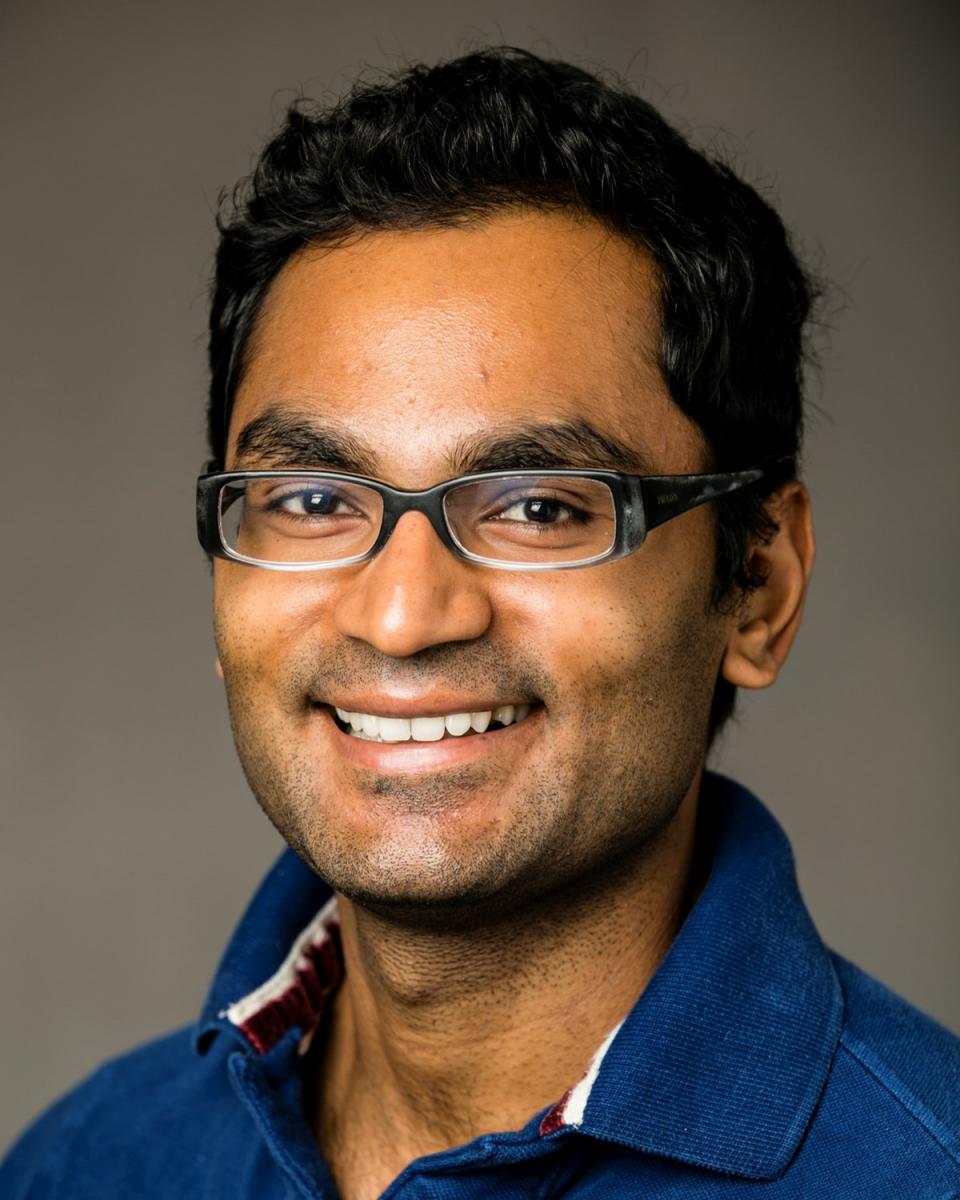
Nikhil U. Nair, Ph.D.
Tufts University
Project Title: Metabolic Engineering in Humans: Altered Gut Microbes as a Therapeutic Platform
Grant ID: DP2-HD-091798
Nikhil U. Nair has been an assistant professor in the department of Chemical & Biological Engineering at Tufts University since 2013. He received his B.S. in Chemical & Biomolecular Engineering from Cornell University in 2003 and then went on obtain his Ph.D. in Chemical & Biomolecular Engineering from the University of Illinois in 2010 under the guidance of synthetic biologist Huimin Zhao. For his post-doctoral training he worked in Ann Hochschild’s lab in Microbiology and Immunobiology at Harvard Medical School to elucidate novel regulatory aspects of transcriptional elongation in bacteria. Research in the Nair lab (sites.tufts.edu/nairlab) is focused on altering various aspects of microbial physiology (such as gene regulation and metabolism) not only to engineer them for biomedical, biochemical, and bioenergy applications, but to also understand how they interact with each other and their environment.
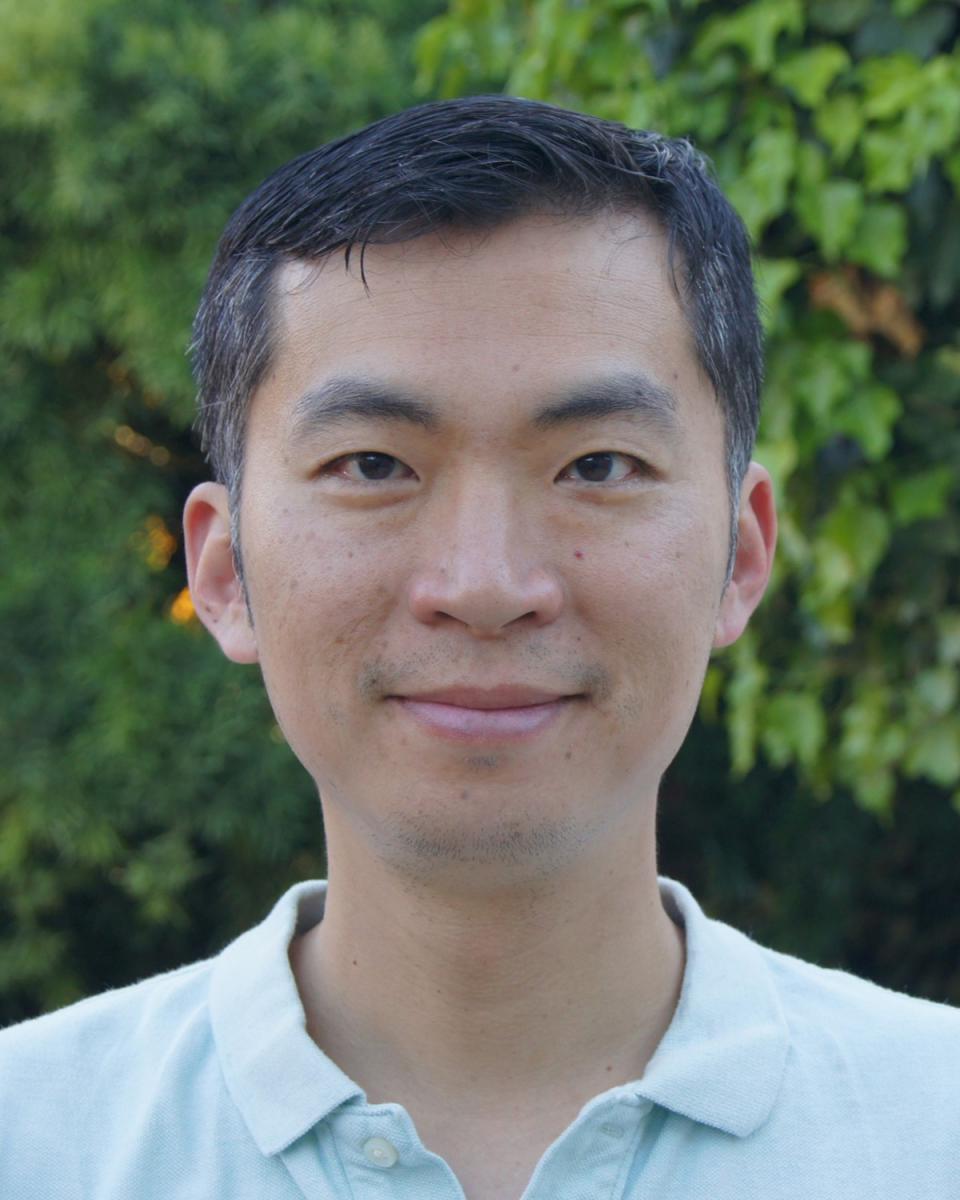
Tien Peng, M.D.
University of California San Francisco
Project Title: Defining the Resident Mesenchymal Stem Cell Niche and Function In Vivo
Grant ID: DP2-AG-056034
Tien Peng is an Assistant Professor in the Department of Medicine and Cardiovascular Research Institute at UC San Francisco. Tien received his M.D. from Johns Hopkins before training at Columbia University for his medicine residency and University of Pennsylvania for his pulmonary/critical care fellowship. He completed his postdoctoral fellowship in the Department of Cell and Developmental Biology at Penn with Ed Morrisey, where he defined cellular feedback loops critical to establishing the mesenchymal progenitor niche during embryonic development and postnatal maintenance. Tien established his own lab at UCSF in 2015, and his group is exploring the nexus between development and aging to build new framework in the study of tissue regeneration.
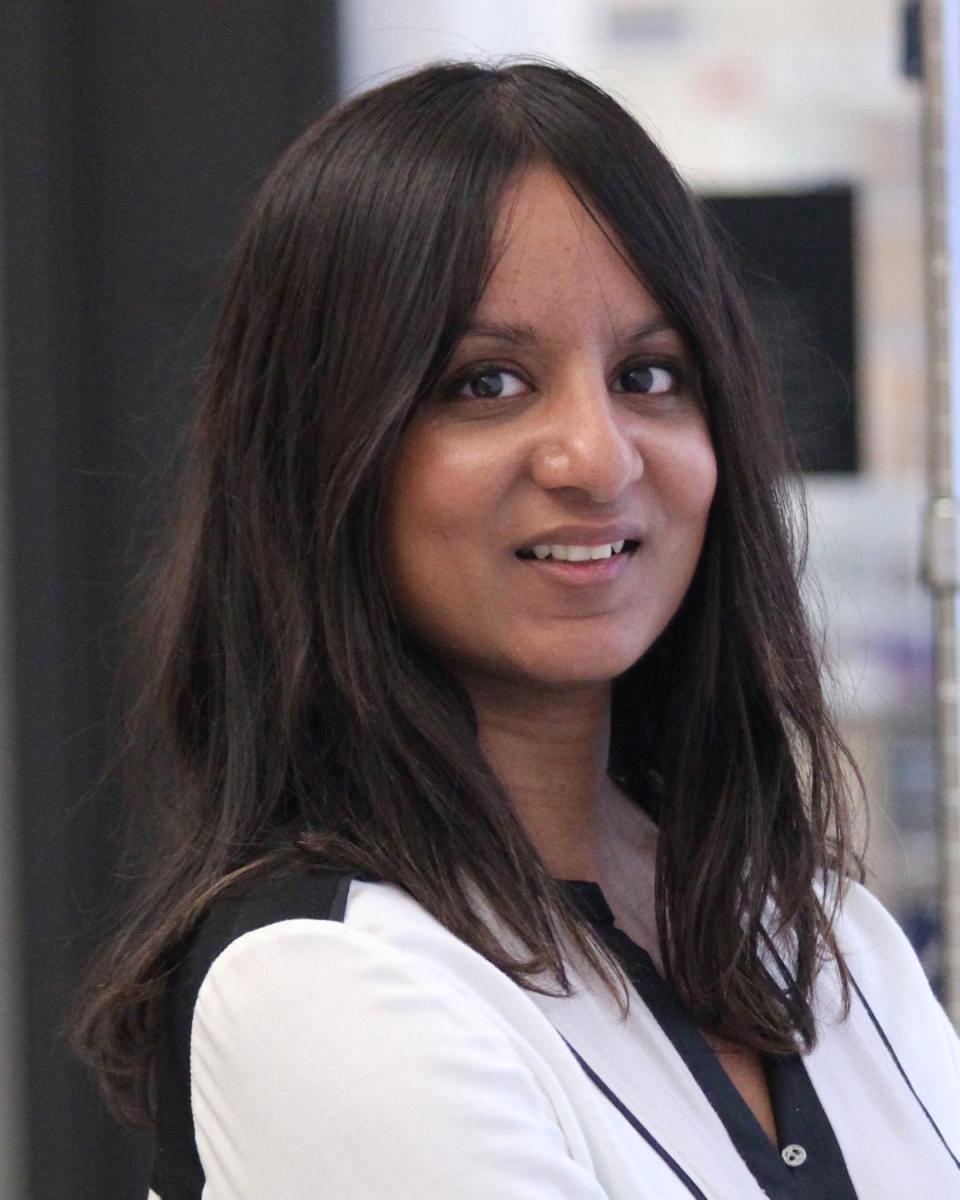
Rushika M. Perera, Ph.D.
University of California, San Francisco
Project Title: Tracking Tumor Evolution Through In Vivo Organelle Profiling
Grant ID: DP2-CA-216364
Rushika Perera received her B.S. from the University of Melbourne and completed her Ph.D. studies at the Ludwig Institute for Cancer Research and the University of Melbourne, Australia. She trained as a postdoctoral fellow at Yale University with Drs. Derek Toomre and Pietro De Camilli studying phosphoinositde mediated control of endocytosis, and at Massachusetts General Hospital / Harvard Medical School in the laboratory of Dr. Nabeel Bardeesy where she uncovered mechanisms of autophagy-lysosome regulation and metabolic reprogramming in pancreatic cancer. In September 2015, she joined the Department of Anatomy at the University of California, San Francisco as an Assistant Professor, where her lab uses in vivo disease models to understand how alterations in organelle composition and function contribute to cancer initiation and progression. Dr. Perera is currently the recipient of an American Association for Cancer Research (AACR)-Pancreatic Cancer Action Network Career Development Award, a Hirshberg Foundation for Pancreatic Cancer Research Grant and was selected as a 2015 AACR-NextGen Star.
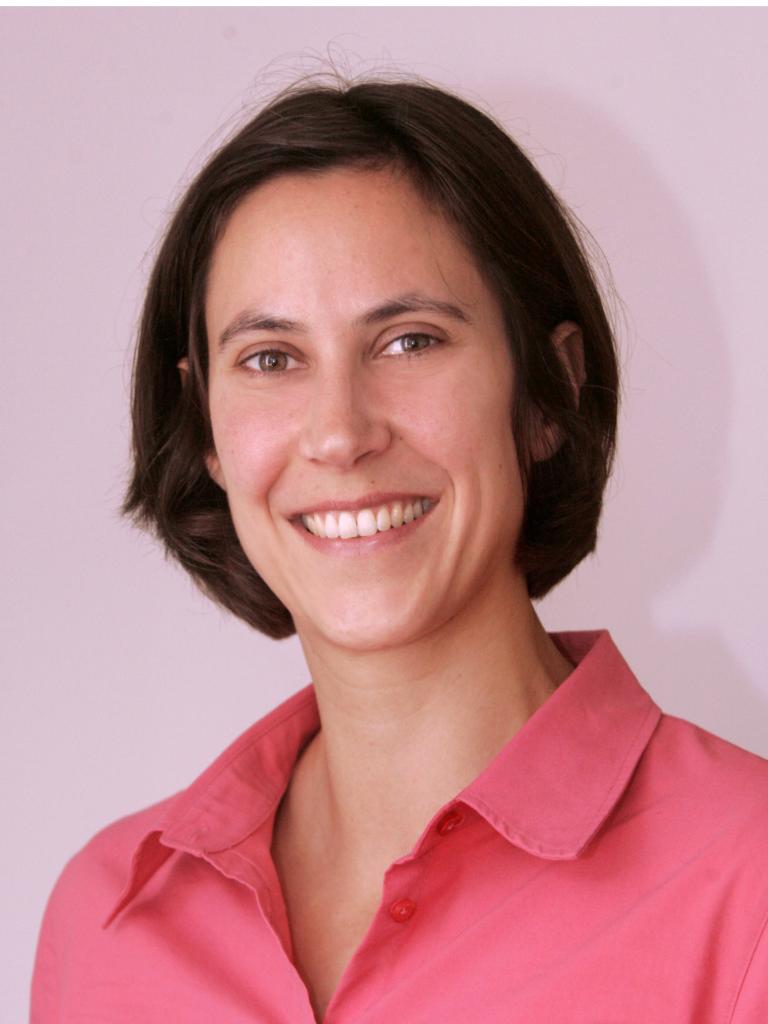
Sabine Petry, Ph.D.
Princeton University
Project Title: Building the Chromosome Segregation Machinery from Scratch
Grant ID: DP2-GM-123493
Funded by the National Institute of General Medical Sciences
Sabine Petry is an Assistant Professor in the Molecular Biology Department at Princeton University. Her research group investigates how the microtubule cytoskeleton builds cellular structures by combining high-resolution microscopy methods with structural studies. Sabine was trained as a biochemist and performed her thesis research with Dr. Venki Ramakrishnan at the MRC Laboratory of Molecular Biology (UK), where she studied how translation factors drive protein synthesis in the ribosome using X-ray crystallography. As a postdoctoral HHMI Fellow of the Life Science Research Foundation in Ron Vale’s lab at UCSF, Sabine pursued the study of a larger molecular entity, the mitotic spindle. In addition to the NIH Director’s New Innovator Award, Sabine is a recipient of the NIH Pathway to Independence Award, the Kimmel Scholar Award for Cancer Research, the Packard Fellowship for Science and Engineering, and the Pew Biomedical Scholars Award.
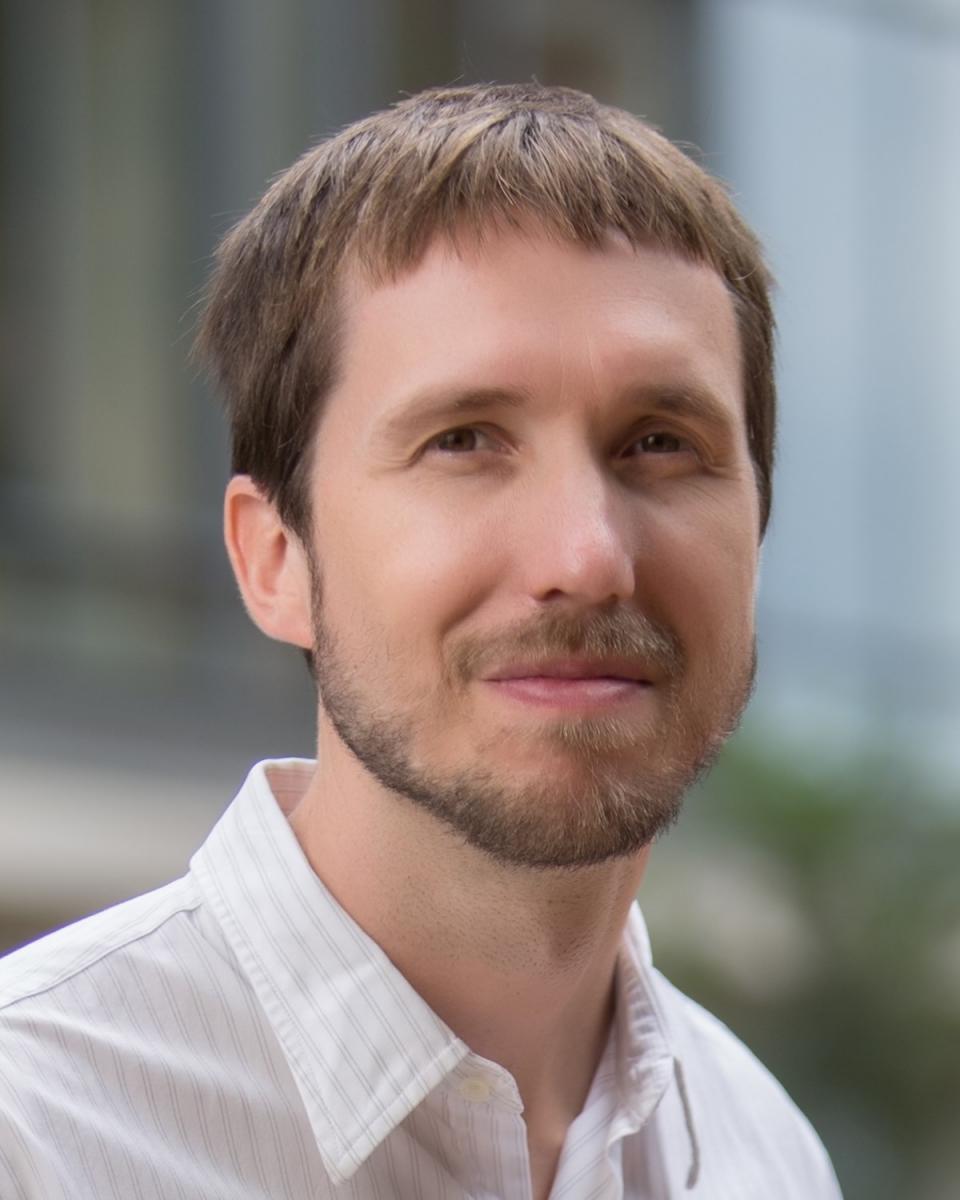
Jeremy Purvis, Ph.D.
University of North Carolina at Chapel Hill
Project Title: Controlling Stem Cell Fate Through Computational Modeling
Grant ID: DP2-HD-091800
Jeremy Purvis is an Assistant Professor of Genetics at the University of North Carolina at Chapel Hill and a member of the Lineberger Comprehensive Cancer Center. He received a Ph.D. in Computational Biology from the University of Pennsylvania where he developed computational models of cell signaling with Scott Diamond and Ravi Radhakrishnan. He completed his postdoctoral training at Harvard Medical School under the mentorship of Galit Lahav, where he studied the role of p53 dynamics in the DNA damage response. As an independent investigator, his group seeks to understand how individual cells make fate decisions and how groups of interacting cells give rise to emergent properties. Their work focuses primarily on early differentiation decisions in human embryonic stem cells and cell cycle arrest decisions in the context of cancer.
Dragana Rogulja, Ph.D.
Harvard Medical School
Project Title: Mechanisms of Arousal Threshold and Sleep Homeostasis
Grant ID: DP2-AT-009498
Dragana Rogulja was born and grew up in Belgrade, Serbia. She joined the Department of Neurobiology at Harvard Medical School in 2013 as an Assistant Professor. Her Ph.D. is from Rutgers University where she studied morphogen gradients with Ken Irvine, and her postdoc was at Rockefeller University where she studied sleep and circadian biology with Mike Young. Her lab has established a novel approach to studying sleep states in Drosophila which they are using to understand how information flow in the brain changes between wakefulness and sleep.

Melanie A. Samuel, Ph.D.
Baylor College of Medicine
Project Title: Synaptic Reprogramming of Adult Neurons
Grant ID: DP2-EY-027984
Melanie Samuel aims to decode the structural and molecular regulators of adult synaptic rewiring. She is currently an Assistant Professor of Neuroscience and CPRIT Scholar in the Huffington Center on Aging at Baylor College of Medicine. As a Barry M. Goldwater Scholar she earned three bachelor’s degrees from the University of Idaho (summa cum laude) and then completed her Ph.D. at Washington University studying neurotropic viral pathogenesis with Michael Diamond. As a postdoctoral fellow with Joshua Sanes at Harvard University she developed the retina as a model for synaptic aging. Her past awards include those from the Howard Hughes Medical Institute, the Damon Runyon Cancer Research Foundation, the Brain Research Foundation and a Pathway to Independence Award from the NIH. Dr. Samuel’s interdisciplinary research group leverages nanoscopic imaging technologies and high throughput in vivo molecular studies of single cells and their circuits in order to identify ways to repair neural networks.
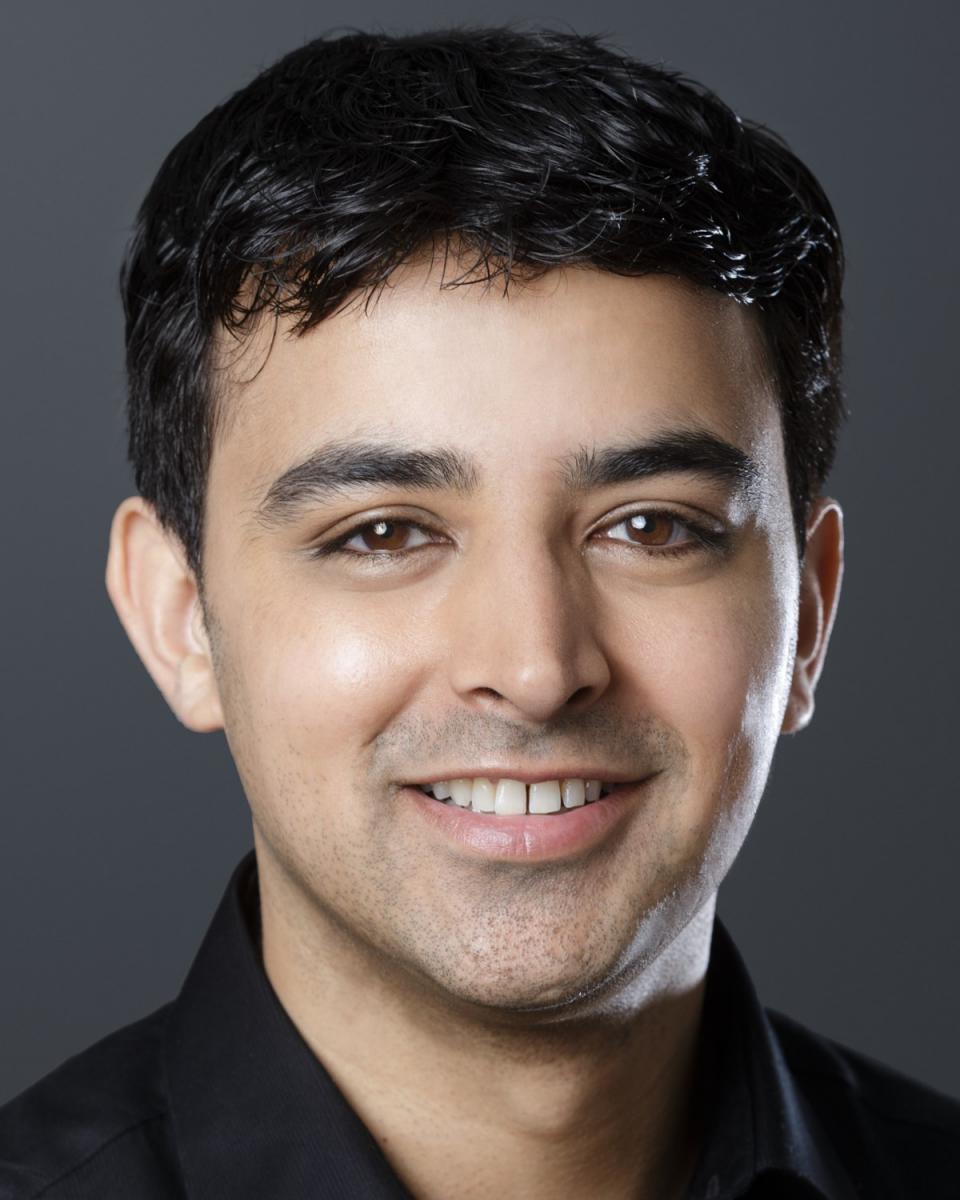
Rahul Satija, Ph.D.
New York Genome Center and New York University
Project Title: Learning the Metadata of the Cell with Single Cell Genomics
Grant ID: DP2-HG-009623
Funded by the Big Data to Knowledge initiative
Rahul Satija is a Core Faculty Member at the New York Genome Center, and an Assistant Professor of Biology at NYU. His research is directed towards understanding cellular decision-making using single cell genomics, with a particular focus on the development and function of the mammalian immune system. As a postdoc in Aviv Regev’s lab at the Broad Institute, he developed new methods to infer a cell’s spatial localization, subtype, and regulatory state based on its gene expression. He holds a BS in Biology and Music from Duke University, and obtained his PhD in Statistics from Oxford University as a Rhodes Scholar.
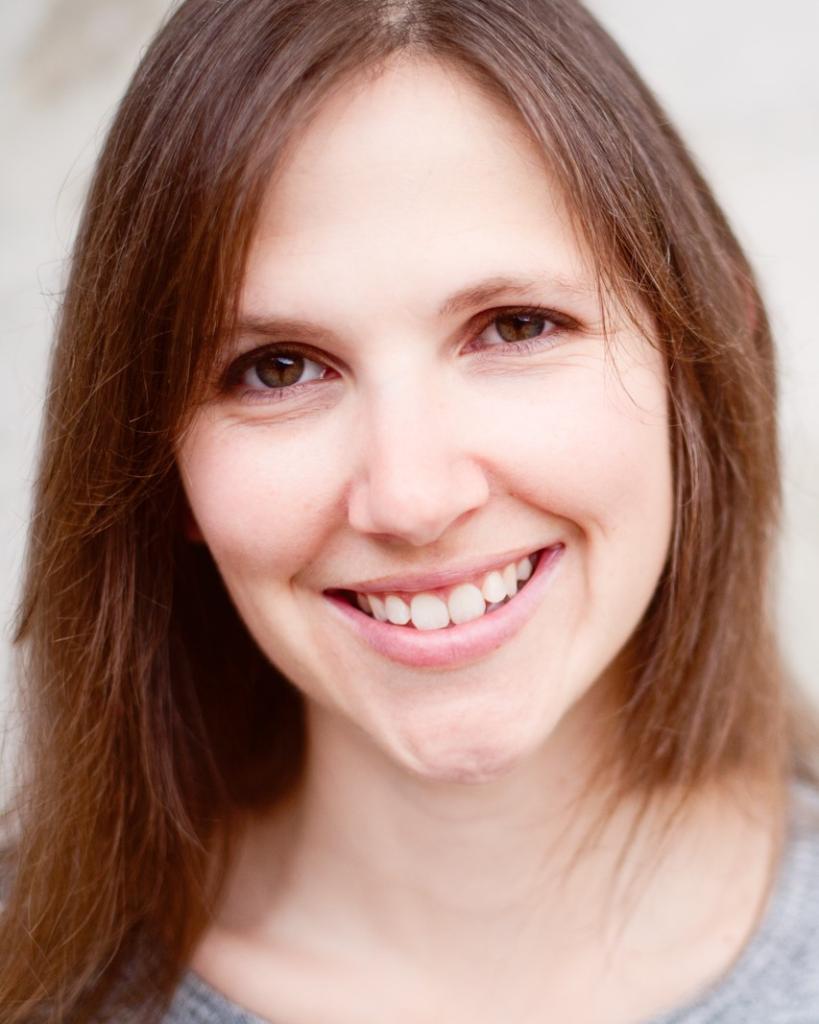
Tiffany Schmidt, Ph.D.
Northwestern University
Project Title: Genetic Mapping of Visual Circuits
Grant ID: DP2-EY-027983
Tiffany Schmidt received her B.A. in Psychology and Biology from Luther College in 2006. She did her Ph.D. work in the lab of Dr. Paulo Kofuji at the University of Minnesota, where she identified diverse structural and physiological properties of the recently discovered melanopsin-expressing intrinsically photosensitive retinal ganglion cells (ipRGCs). Dr. Schmidt then went on to do her postdoctoral work in the lab of Dr. Samer Hattar in the Department of Biology at Johns Hopkins University, where she defined behavioral roles for these newly discovered ipRGC subtypes. In 2014, she joined the faculty as an Assistant Professor in the Department of Neurobiology at Northwestern University, where her lab focuses on elucidating the neural circuits underlying light-driven behavior.
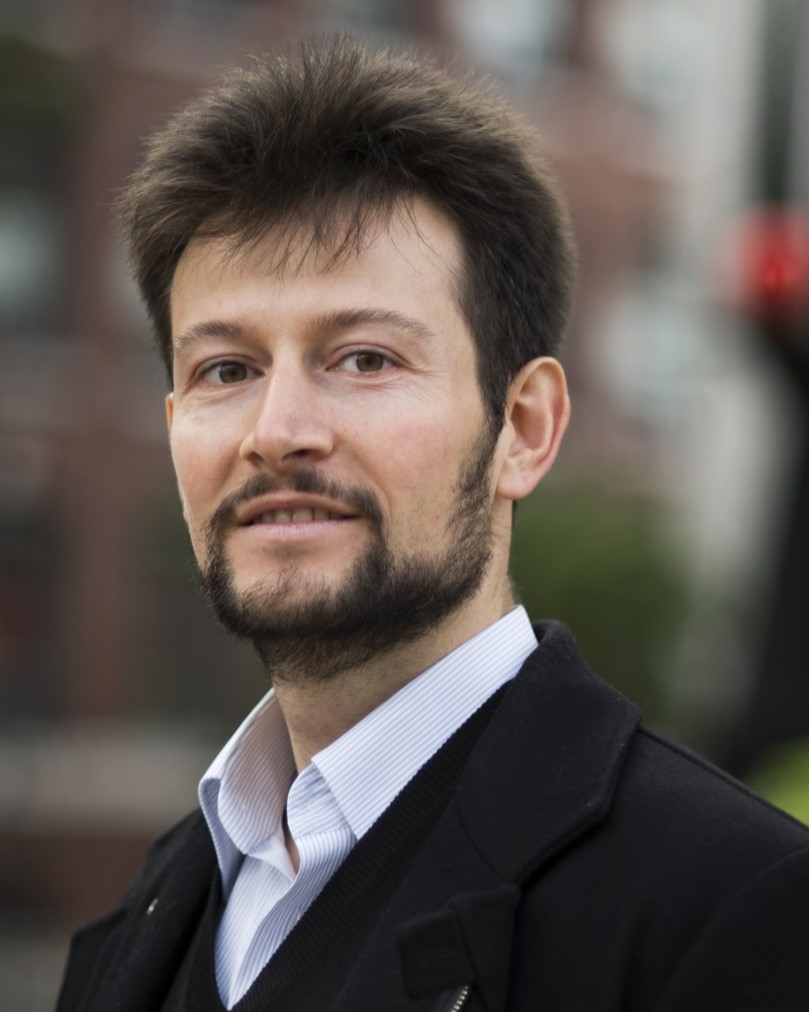
Nikolai Slavov, Ph.D.
Northeastern University
Project Title: Ribosome-Mediated Translational Regulation During Stem Cell Differentiation
Grant ID: DP2-GM-123497
Nikolai Slavov received undergraduate education at MIT and pursued doctoral research in the Botstein laboratory at Princeton University, aiming to understand how cells coordinate growth rate, gene expression, and metabolism. During his postdoctoral research in the van Oudenaarden laboratory at MIT, he characterized trade-offs of aerobic glycolysis (also known as Warburg effect). Subsequently, he obtained direct evidence for ribosome heterogeneity in yeast and in mouse embryonic stem cells. His laboratory explores the functional roles of this ribosome heterogeneity and the regulation of protein synthesis in single cells.
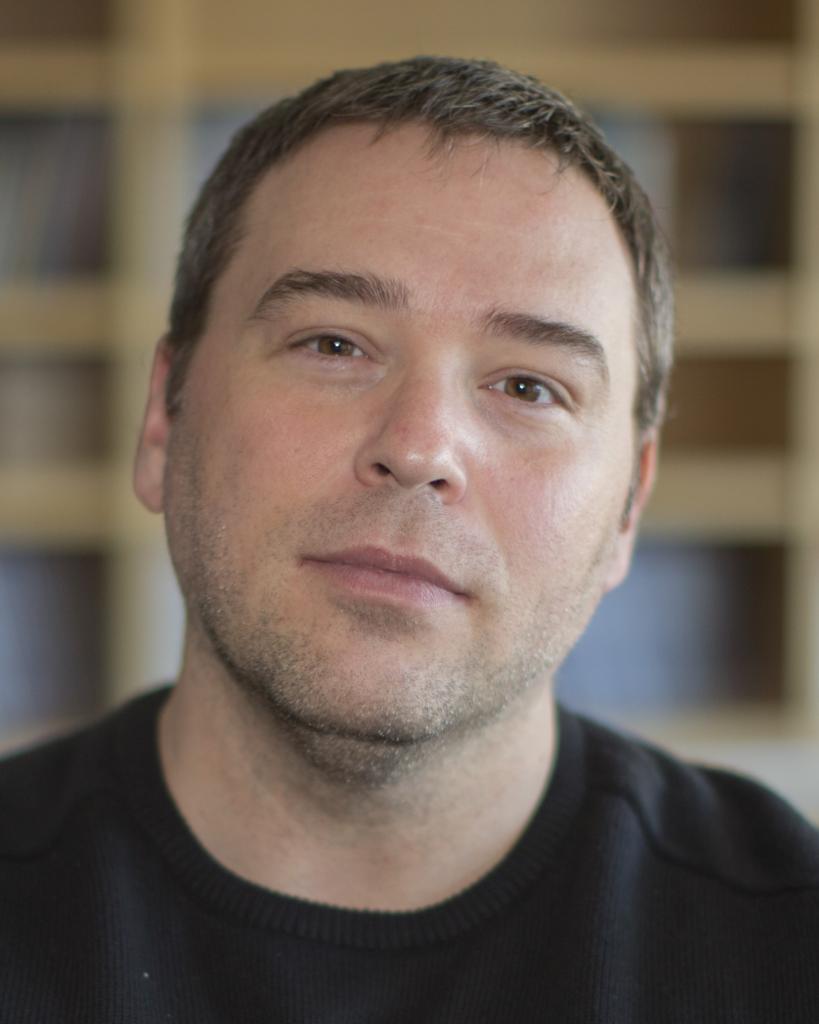
William R. Stauffer, Ph.D.
University of Pittsburgh
Project Title: Neural Correlates of Optimal Value Seeking in the Reward System
Grant ID: DP2-MH-113095
William Stauffer received his BS in neuroscience (2003) and PhD in bioengineering (2009) from the University of Pittsburgh. During his graduate studies in Tracy Cui’s lab he focused his research efforts on the neural tissue – electrode interface; his research developed methods to promote neural adhesion and to precisely deliver neuroactive chemicals to study information flow in a network. In 2009 he became a postdoc in Wolfram Schultz’s behavioral neuroscience laboratory at the University of Cambridge where he investigated neural coding of economic variables, and developed a technique to enable cell-type specific optogenetics in dopamine neurons of Rhesus macaque monkeys. William joined the faculty of the Department of Neurobiology at the University of Pittsburgh in 2015. During the past year, William has developed a multidisciplinary research program focused on: (1) investigating the behavioral functions of the reward system – from deliberation and decision making to learning and memory formation – and (2) developing enabling technologies to bridge the gap between molecular and systems neuroscience.
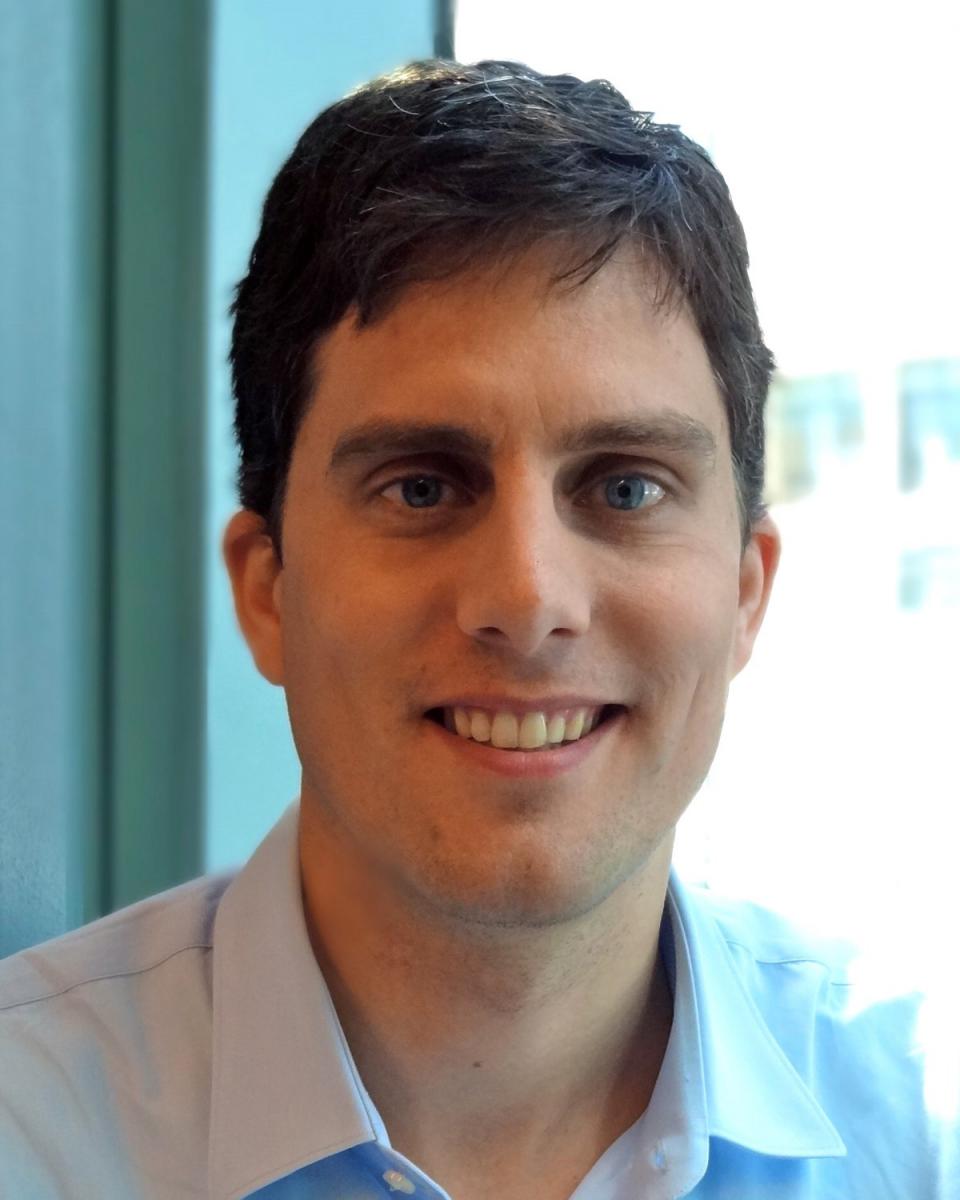
Matthew Steinhauser, M.D.
Brigham and Women’s Hospital
Project Title: A New Modality to Image Tumor Metabolic Heterogeneity at Subcellular Resolution
Grant ID: DP2-CA-216362
Matthew Steinhauser received his undergraduate and medical degrees at the University of Michigan, where he studied the cytokine and chemokine networks that regulate acute and chronic inflammation in the laboratory of Dr. Steven Kunkel. He then completed clinical training in internal medicine at Columbia University Medical Center, followed by subspecialty training in cardiology at Brigham and Women’s Hospital. After post-doctoral training in stem cell biology and cardiac regeneration in the laboratory of Dr. Richard Lee, Dr. Steinhauser started an independent laboratory in the Division of Genetics at Brigham and Women’s Hospital. He studies the cellular and metabolic adaptation of adipose tissue to changes in caloric intake and how such responses influence cardiometabolic disease. More recently the laboratory has developed an interest in the metabolic adaptations undertaken by cancer cells to promote survival, growth, and resistance to targeted therapies.
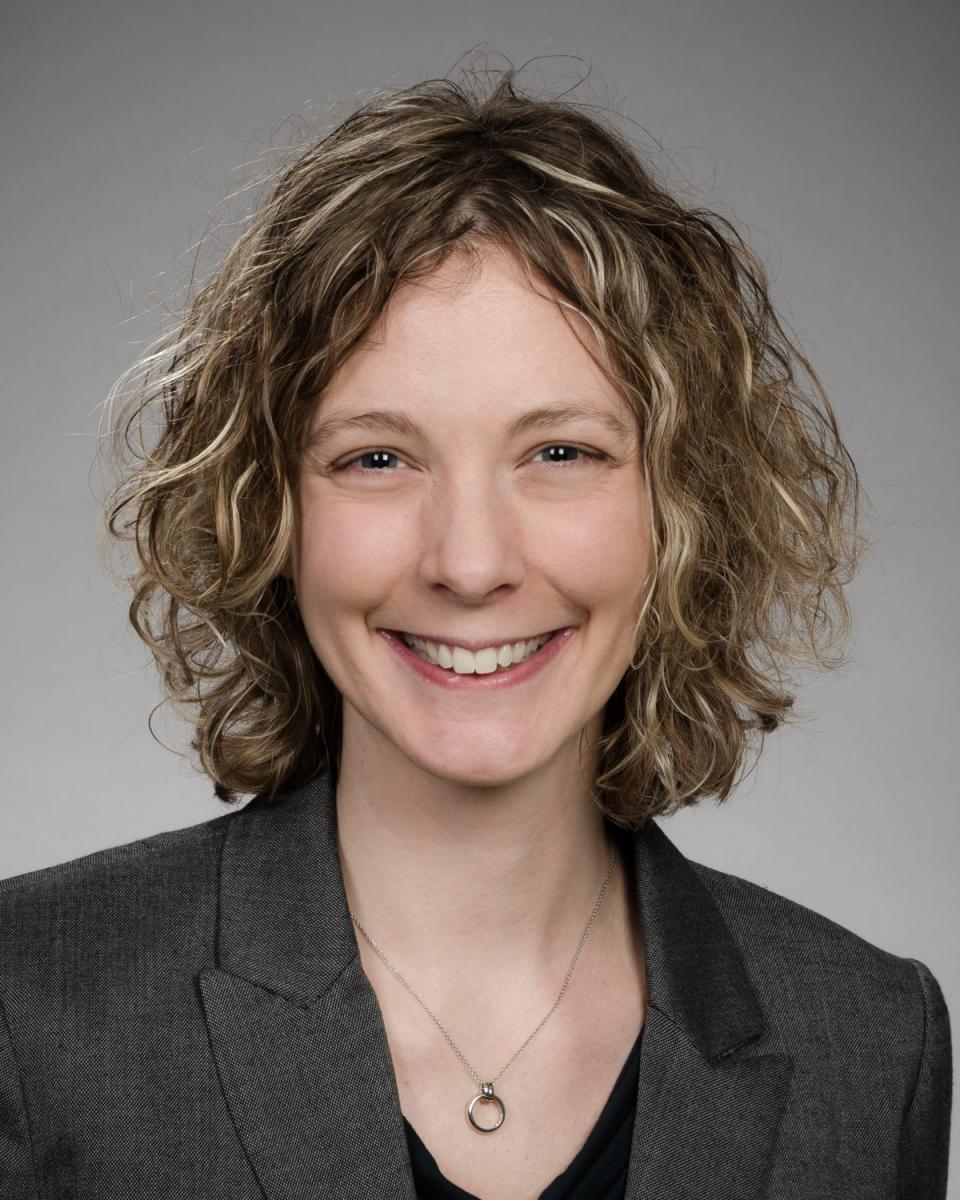
Kelly R. Stevens, Ph.D.
University of Washington
Project Title: Thermogenetic Activation of Engineered Tissue for Cardiac Repair
Grant ID: DP2-HL-137188
Funded by the National Heart, Lung, and Blood Institute
Kelly Stevens is an Assistant Professor in the Departments of Bioengineering and Pathology at the University of Washington. Her research focuses on developing new technologies to assemble artificial human tissues from stem cells, and then remotely control these tissues after implantation in a patient. Dr. Stevens received a B.S. in Biomedical Engineering from the University of Wisconsin-Madison, a Ph.D. in Bioengineering from the University of Washington, and postdoctoral training at Massachusetts Institute of Technology. Her scientific contributions to date have centered on the development of complex multicellular tissues for organ repair, with increasing focus on enhancing tissue function, microvascularization, and organization. Some examples include the construction of functional scaffold-free cardiac tissue from pluripotent stem cells, the subsequent ‘pre-vascularization’ of these tissues using the intrinsic capacity of microvascular cells to self-organize, and the geometric control of multicellular patterning for optimal cellular function and microvascular ingrowth after implantation.
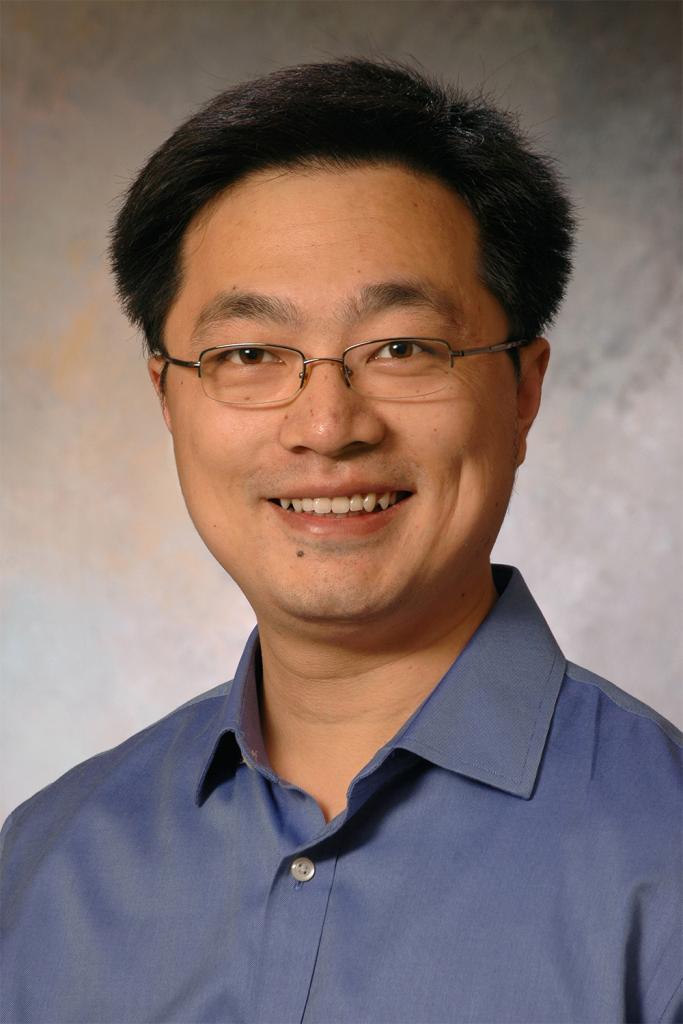
Bozhi Tian, Ph.D.
University of Chicago
Project Title: Silicon-Based Injectable Micro-Gels for Non-genetic and Wireless Modulation of Neurons, Cardiomyocytes and Neuromuscular System
Grant ID: DP2-NS-101488
Bozhi Tian received his Ph.D. in physical chemistry from Harvard University, where he worked with Professor Charles Lieber on synthetic techniques for nanowire materials, fundamental study of high-performance nanowire photovoltaics, and development of advanced nanoelectronic devices for electrophysiology. He then worked as a postdoctoral scholar at MIT and Harvard Medical School with Professors Robert Langer and Daniel Kohane on tissue engineering and biomaterials development. He is currently an assistant professor at the University of Chicago, with research focusing on semiconductor-enabled exploration of cellular biophysics and soft matter dynamics. His lab has developed a class of silicon-based materials and devices that exhibit enhanced interactions with subcellular components, demonstrating applications in cellular force dynamics measurement and optical modulation of neurons. Dr. Tian’s accolades during his independent career include Presidential Early Career Awards for Scientists and Engineers (PECASE) (2016), ONR young investigator award (2016), Sloan fellowship (2016), AFOSR young investigator award (2015), NSF CAREER award (2013), Searle Scholar award (2013), and TR35 honoree (2012).
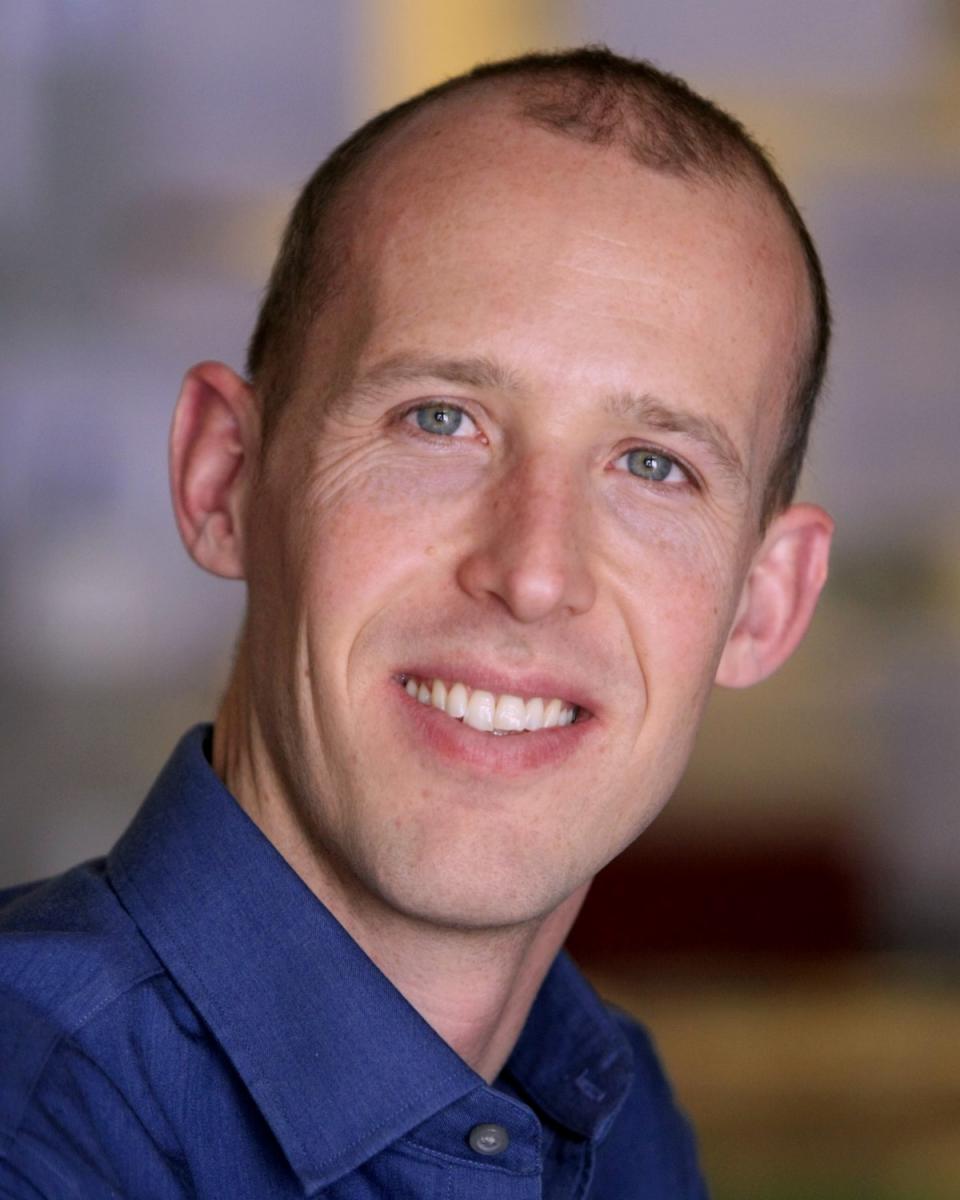
Jared Toettcher, Ph.D.
Princeton University
Project Title: Harnessing Optogenetics to Diagnose and Therapeutically Rewire Cancer Cell Signaling
Grant ID: DP2-EB-024247
Jared Toettcher received his B.S. in Bioengineering from UC Berkeley and his Ph.D. in Biological Engineering from MIT, where he studied the relationship between mammalian cells’ surveillance of DNA damage and decision to undergo cell cycle arrest under the mentorship of Bruce Tidor (MIT) and Galit Lahav (Harvard Medical School). As a postdoctoral fellow in the laboratories of Wendell Lim and Orion Weiner at UCSF, Dr. Toettcher pioneered the use of precise optogenetic control to study signaling in the mammalian Ras and PI 3-kinase pathways. He is currently an Assistant Professor of Molecular Biology at Princeton University, where his lab primarily studies how growth factor signaling pathways process extracellular information to control diverse cellular responses. His current work spans model systems including the early fly embryo, mammalian tissues and tumor cells. Dr. Toettcher’s honors and awards include a Cancer Research Institute fellowship, an MIT Presidential Fellowship and a UC Berkeley Regents’ Scholarship.
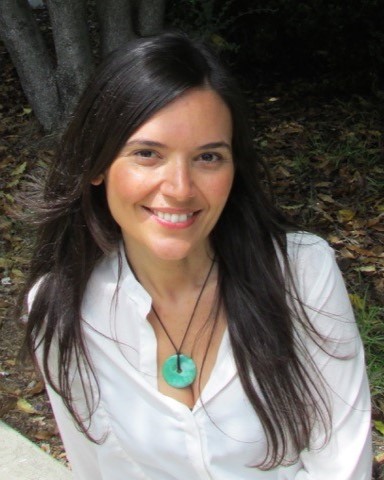
Elçin Ünal, Ph.D.
University of California, Berkeley
Project Title: Illuminating Cellular Aging Pathways Through Gametogenesis
Grant ID: DP2-AG-055946
Elçin Ünal is an Assistant Professor in the Molecular and Cell Biology Department at the University of California, Berkeley. Her lab studies the principles that control the nuclear and cytoplasmic integrity of gametes towards understanding how gamete formation counteracts age-induced cellular damage and how the meiotic cells partition their chromosomes. Elçin received her undergraduate degree in Molecular Biology and Genetics from Bilkent University, Turkey. She then moved to the United States to pursue her PhD research in Doug Koshland’s lab at the Carnegie Institution, Department of Embryology and completed postdoctoral training in Angelika Amon’s lab at MIT. In addition to the NIH Innovator Award, Elçin is the recipient of a Pew Scholarship, a March of Dimes Basil O’Connor Award as well as a Damon Runyon Rachleff Innovator Award.
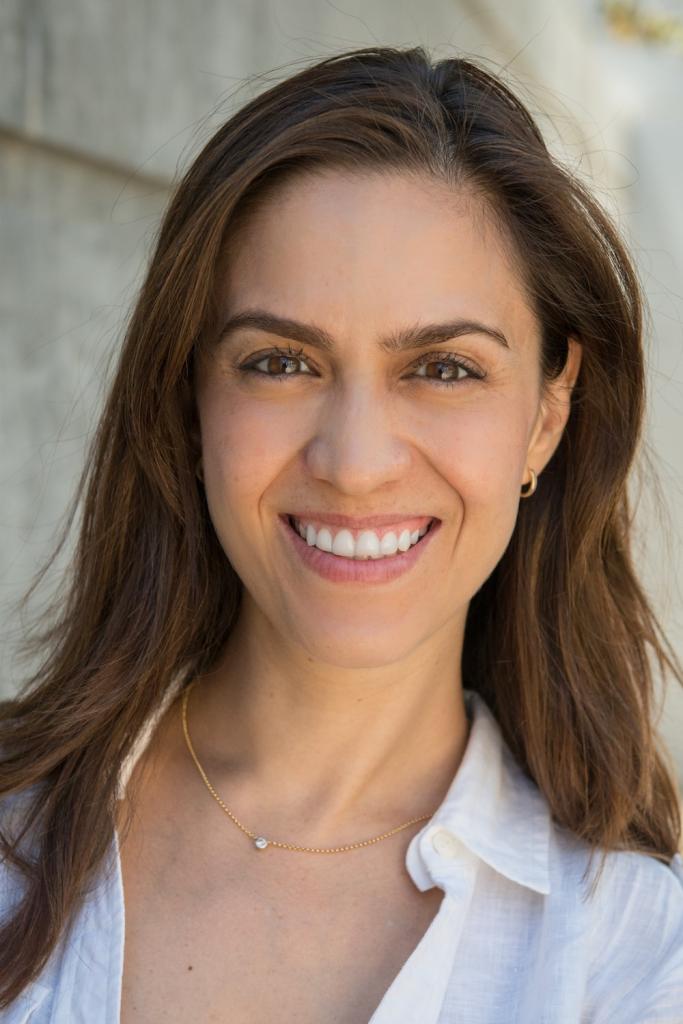
Elizabeth Villa, Ph.D.
University of California San Diego
Project Title: Opening Windows into the Cell: Revealing the Molecular Architecture of the Nuclear Periphery
Grant ID: DP2-GM-123494
Funded by the National Institute of General Medical Sciences
Elizabeth Villa received a Ph.D. in Biophysics from the University of Illinois at Urbana-Champaign working with Klaus Schulten on multiscale simulations of biomolecular complexes, where she work closely with Joachim Frank developing computational tools for cryo-electron microscopy. She was a Marie Curie postdoctoral fellow in the lab of Wolfgang Baumeister at the Max Planck Institute of Biochemistry in Munich. Her lab develops tools to observe macromolecular complexes in their natural environment, the cell. Her goal is to transform cryo-electron tomography into a high-resolution technique to unveil the structural dynamics of these complexes that is directly compatible with other biophysics experiments. She combines cell biology and cryo-electron microscopy to generate data, and use computational analysis and physical modeling to understand these data. Her current research is focused on studying the nuclear periphery, one of the most exciting and structurally uncharted territories in the cell.
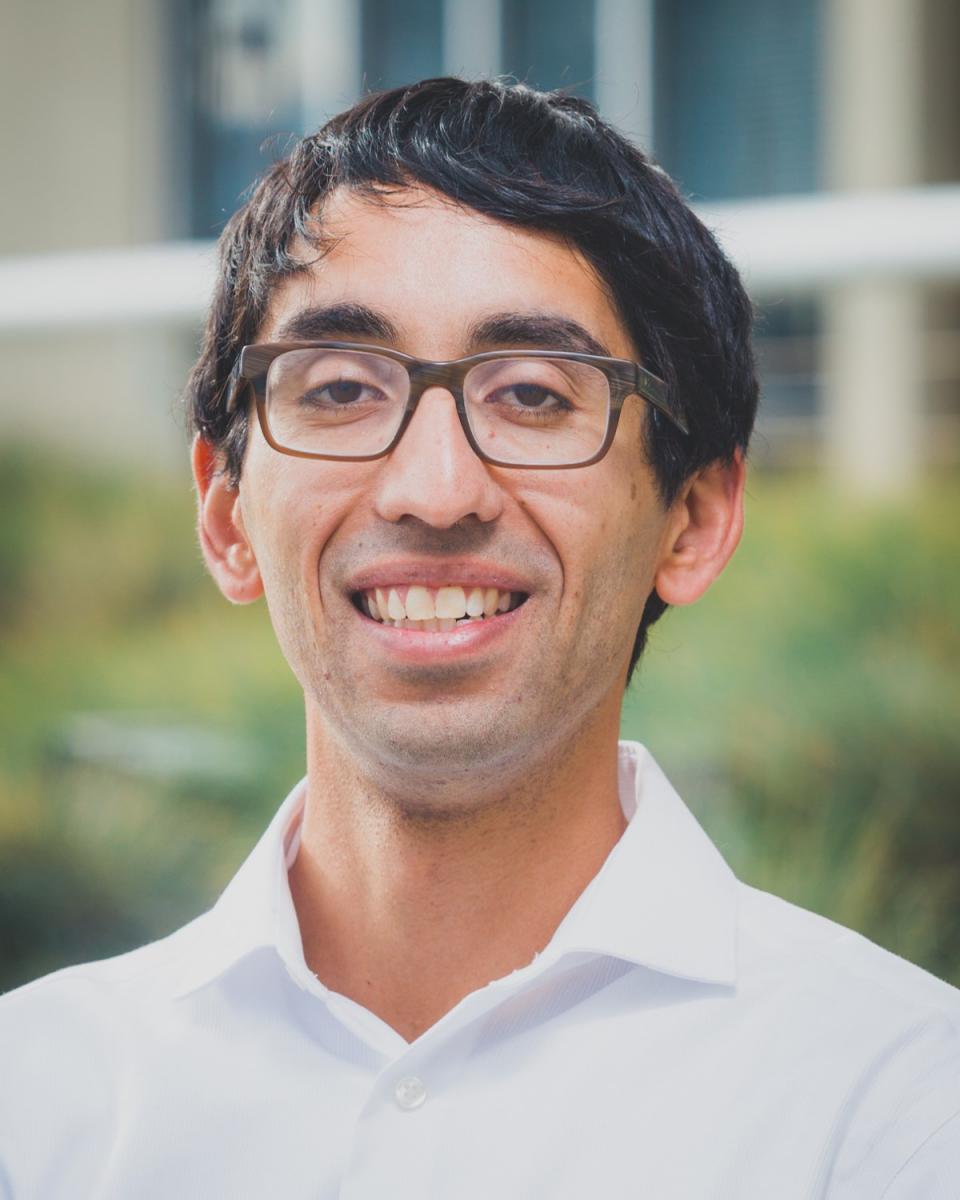
Arun P. Wiita, M.D., Ph.D.
University of California, San Francisco School of Medicine
Project Title: In Vivo Monitoring of Oxidative Protein Folding Through Time-Resolved Quantitative Mass Spectrometry
Grant ID: DP2-GM-123500
Arun Wiita completed his undergraduate training in Chemistry at Princeton University and a combined MD/PhD at Columbia University with graduate training in single molecule biophysics in the laboratory of Julio Fernandez. Dr. Wiita went on to UCSF to complete residency training in Laboratory Medicine (Clinical Pathology) and then joined the lab of Jim Wells at UCSF as a Damon Runyon Postdoctoral Fellow. In 2014, Dr. Wiita started his own lab at UCSF with a range of interests spanning basic and translational research in hematologic malignancies and genetic disease. The core goal of his group is answering unresolved clinical questions with advanced applications of quantitative mass spectrometry-based proteomics, with a particular focus on mechanisms linking cellular genomic aberrations to phenotypic changes mediated at the protein level.
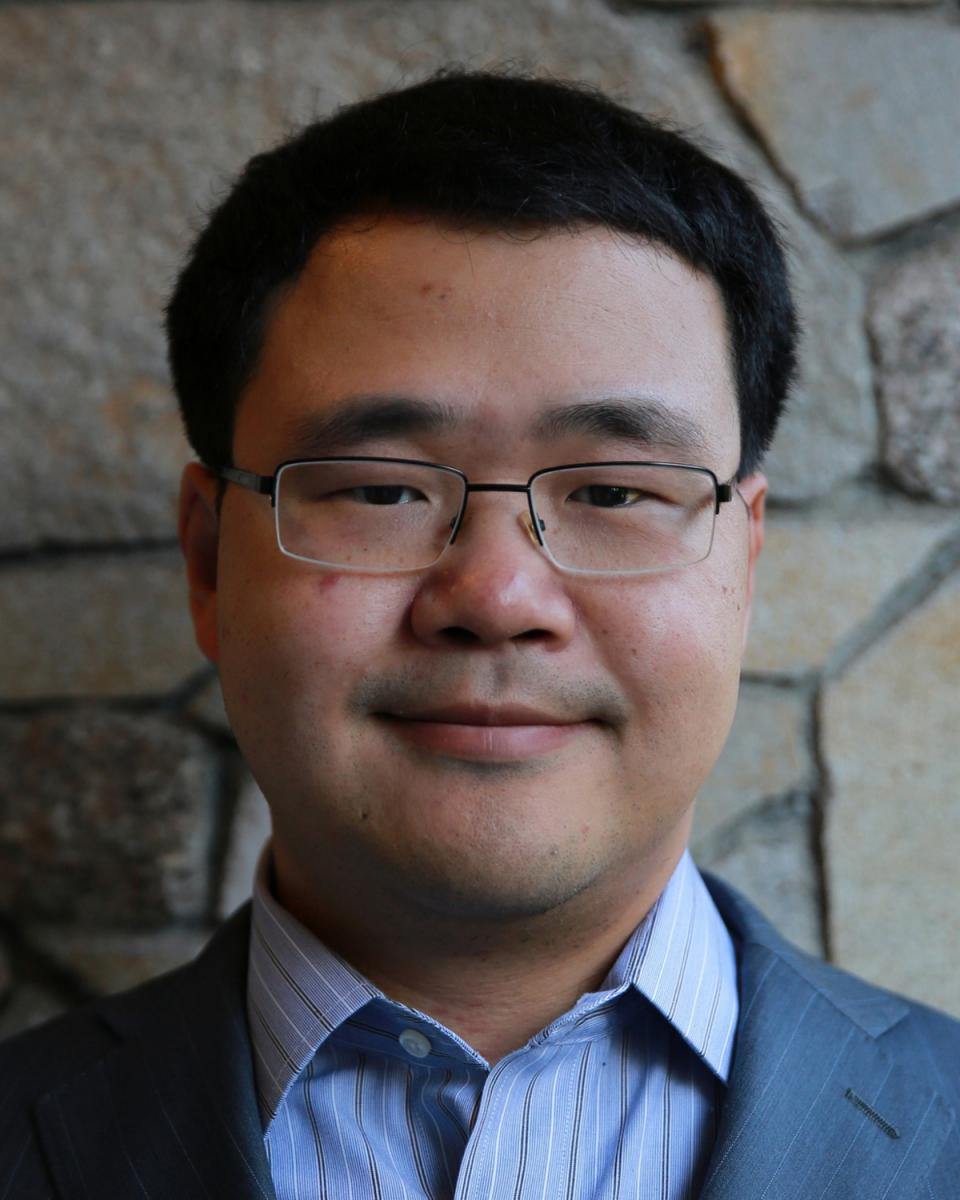
Wen Xue, Ph.D.
University of Massachusetts Medical School
Project Title: CRISPR-Based Modular Therapy for Precision Medicine
Grant ID: DP2-HL-137167
Dr. Wen Xue is an Assistant Professor in the RNA Therapeutics Institute at University of Massachusetts Medical School. His research focuses on building precision mouse models of cancer and genetic diseases using RNA tools. Dr. Xue received his B.S. and M.S. from Nanjing University, China. He did Ph.D. training with Dr. Scott Lowe at the Cold Spring Harbor labs and postdoctoral training under the mentorship of Dr. Tyler Jacks at MIT. In addition to the NIH Director’s New Innovator Award, his lab is supported by the NCI R00, NHLBI P01, American Cancer Society, Lung Cancer Research Foundation, and Hyundai Hope On Wheels Pediatric Cancer Grant.
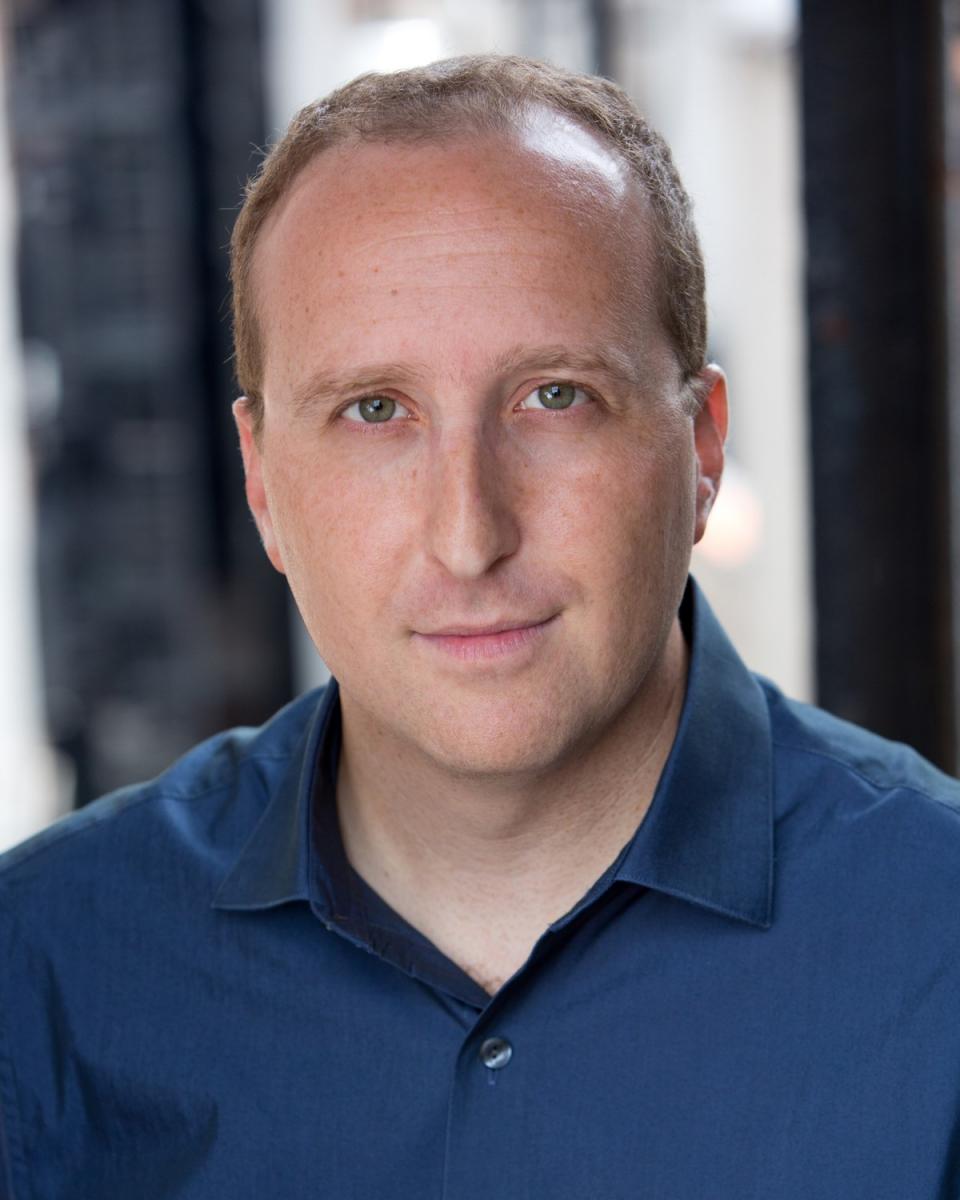
Michael M. Yartsev, Ph.D.
University of California, Berkeley
Project Title: The First Mammalian Model System for Studying Vocal Learning: A Behavioral and Neurophysiological Approach
Grant ID: DP2-DC-016163
Michael Yartsev received his Ph.D. at the Weizmann Institute where he worked in the laboratory of Nachum Ulanovsky on the neurobiological basis of multi-dimensional spatial representation in the hippocampal formation of freely behaving and flying bats. He then joined Princeton University and the laboratory of Carlos Brody as a CV Starr fellow where he studied the computations performed by striatal circuits during gradual accumulation of sensory evidence. He is currently an Assistant Professor of department of bioengineering and the Helen Wills neuroscience institute at UC Berkeley. His lab's goal is to use the bat in order to understand the detailed neurobiological computations that support complex spatial and acoustic behaviors in mammals. In addition to the NIH Director’s New Innovator Award, Dr. Yartsev is also a Searle Scholar, a PEW scholar, a Klingenstein-Simons Fellow, recipient of the Brain Initiative EAGER award from the National Science Foundation as well as recipient of the Human Frontiers Research Program Grant.



